Steven’s Stage 2B Non-Seminoma Testicular Cancer Story
As a 21-year-old, Steven put off getting examined by a doctor when he noticed changes in his testicle. Three years later, he knew something was wrong when he noticed a lump in his back.
Today, Steven is a survivor and board member of the Testicular Cancer Awareness Foundation who’s made it his mission to spread awareness through his podcast “It Takes Balls.”
Steven shares his story about being diagnosed with testicular cancer, and undergoing an orchiectomy, chemo, and RPLND surgery to help those like him.
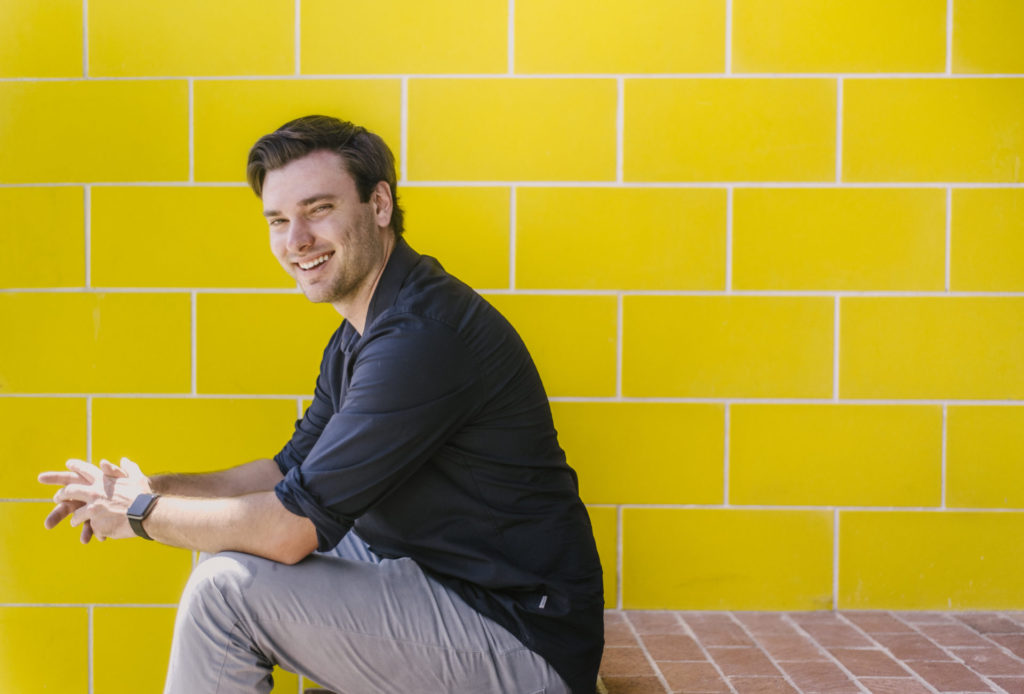
- Name: Steven C.
- Diagnosis (DX):
- Testicular Cancer
- Non-Seminoma
- Testicular Cancer
- Staging: 2B
- Age at DX: 24
- Symptoms:
- Enlarged left testicle
- Tenderness in left testicle
- Lump in back (retroperitoneum)
- Treatment:
- Orchiectomy
- Removal of left testicle
- Chemo
- 4X EP (4 rounds of etoposide and cisplatin)
- Retroperitoneal lymph node dissection (RPLND)
- Lymph node removal in the back of the abdomen
- Orchiectomy
This interview has been edited for clarity. This is not medical advice. Please consult with your healthcare provider for treatment decisions.
- First Symptoms
- Testing & Diagnosis
- Orchiectomy Surgery
- Chemo & RPLND Surgery
- Spreading Awareness
- Having a support system
- How did your work respond to your having cancer?
- Empowering people to talk about testicular cancer
- Do you still get “scanxiety”?
- What would you say to someone who hasn’t been examined by their doctor?
- Where can people learn more about testicular cancer?
- Supporting others and finding support
- Testicular Cancer & Fertility
- Reflections
First Symptoms
Tell us about yourself
I’m Steven. I live in Virginia Beach, Virginia. I’ve lived here my whole life.
I’m 28 years old, I went to school for media production, and I have a podcast for testicular cancer awareness that I do full-time.
I like to golf because, as you know, I like to lose balls as often as I can.
When did your first testicular cancer symptoms occur?
I don’t know the exact date that things started – I know it was sometime in 2016. I noticed that my left testicle was getting increasingly tender and slowly getting bigger.
The girl I was dating at the time really wanted me to go to the doctor because her dad had passed away from esophageal cancer. She said, had he been checked out earlier, he might have been able to live longer. I said I don’t want to hear the “C” word. Despite saying that, I was still doing Dr. Google. I kept seeing testicular cancer come up and I just did not want to go to the doctor and find out that that was the case, so I put it off.
It never got massive. You hear stories about people who have grapefruit-sized testicles. Luckily, that was not me. I probably would have been seen sooner if it was.
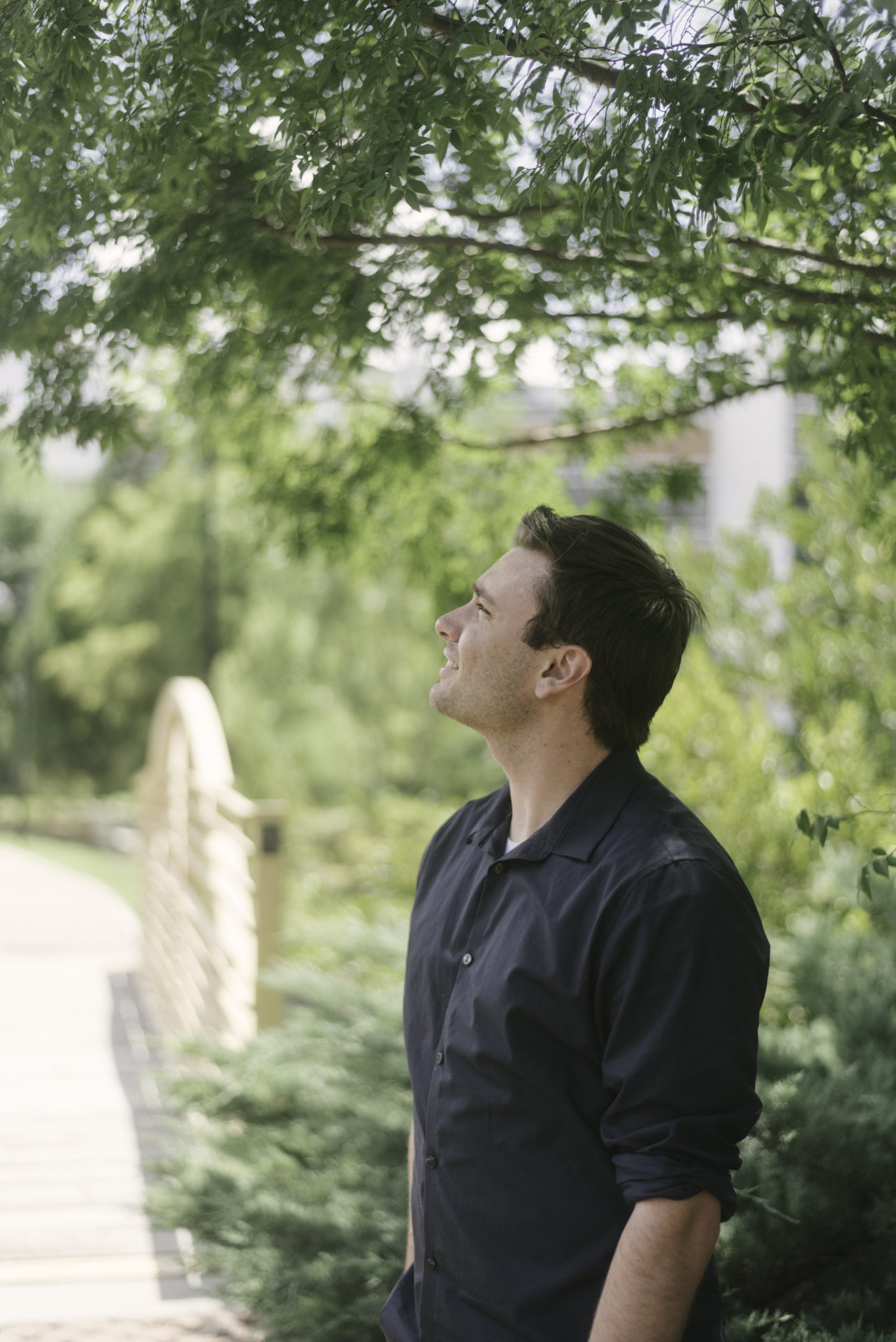
I said I don’t want to hear the “C” word. Despite saying that, I was still doing Dr. Google. I kept seeing testicular cancer come up and I just did not want to go to the doctor and find out that that was the case, so I put it off.
What made you decide to see a doctor?
In the spring of 2019, I noticed a lump in my back. I was driving home from work and I felt like my shirt was bunched up. I reached back to fix it and it wasn’t my shirt. I knew from looking at the Internet on Dr. Google and peripherally seeing these things that when it spreads, it spreads to the back or the retroperitoneum. That was when I knew that I needed to be seen because I knew that something was going on.
How old were you when you experienced your first symptoms?
I would have been 21 and then turned 22, depending on what time of year it was. Age never was a factor for me. It was more of I didn’t want to hear the word, so I kept putting it off and was trying to avoid it at all costs.
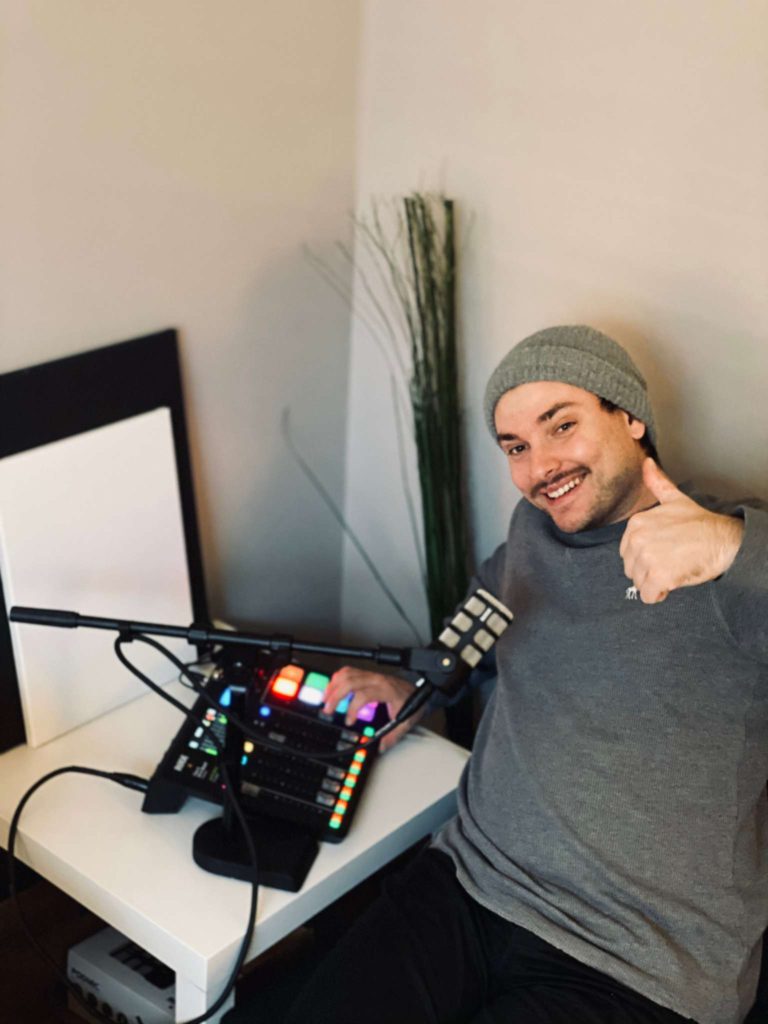
Did you feel any pain with your symptoms?
I wouldn’t say it was pain as much as it was discomfort. It was not something that I had been used to before.
Testing & Diagnosis
Getting examined and tested
I went to my primary care physician and she did a testicular exam. She said, “I do feel a little hardness in the back. It might be epididymis.” She gave me antibiotics for that but she said, “Just to be safe, I’m going to order an ultrasound.”
That was May 31st of 2019. I remember that day because there was a mass shooting at Virginia Beach’s courthouse and it was a big day for the city and me personally.
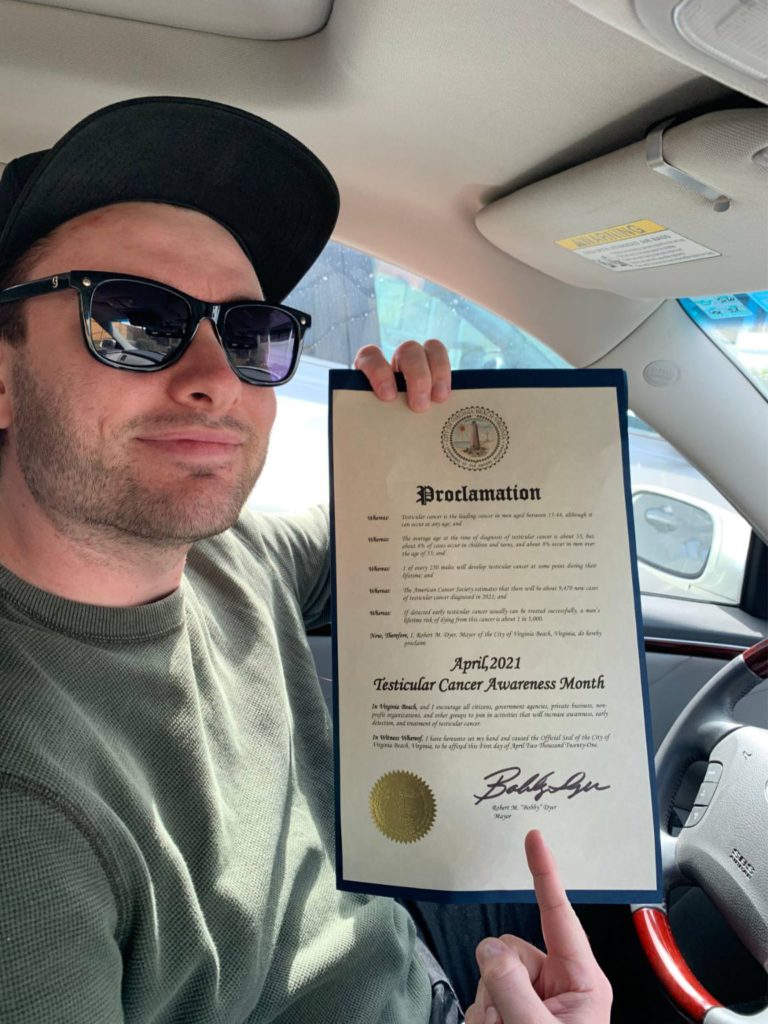
The urologist walked in the door and immediately said, “9 times out of 10, when we find a mass like this, it’s testicular cancer.
What were the results of your ultrasound?
My production company was having its meeting for the biggest job that we had had to date. My doctor called me when I was in that meeting and she said, “Steven, they found a mass. I’m going to refer you to urology.”
I went to the urologist on June 10th. I had just turned 25 on the 7th. The urologist walked in the door and immediately said, “9 times out of 10, when we find a mass like this, it’s testicular cancer. I have an opening tomorrow at noon. If your insurance is accepted at the hospital where I’m going to be tomorrow, I can take it out tomorrow.” Then as a formality, he did the blood work for the tumor markers and scheduled the orchiectomy.
What were you feeling when you received your results?
From then until now, I think I still feel numb to it. As a survivor, recurrence is one of the things that everybody is afraid of. I just recently had another ultrasound because I thought I was having pain in my remaining testicle. When they were doing it, they asked, “Does that hurt?” I said, “It doesn’t hurt, but it doesn’t not hurt.” I think I’m just numb to the feeling and have PTSD.
Orchiectomy Surgery
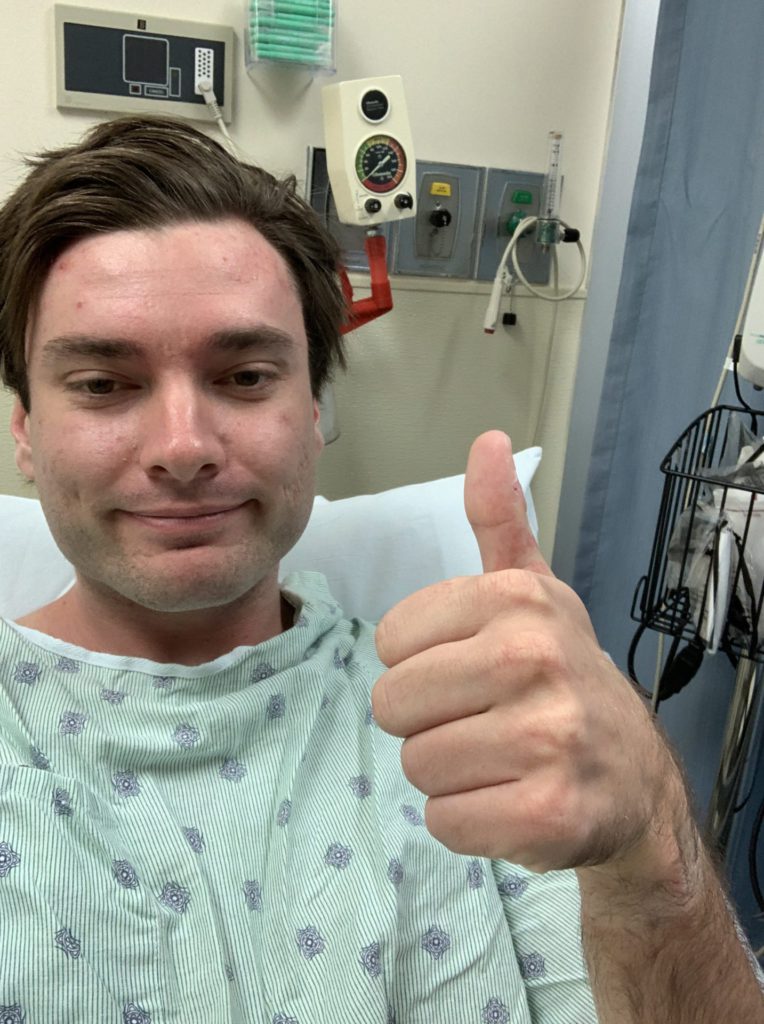
Describe your orchiectomy surgery
The orchiectomy is the removal of the testicle. [My doctor] didn’t really go over what the surgery would entail or what it would look like, but they cut in your pubic area, not in your scrotum, and they pull the testicle out that way. It was a pretty easy surgery. I mean, he was the one doing it. I was just laying there asleep. He said it was going to be 30 minutes, so it was outpatient. It was probably a week of recovery.
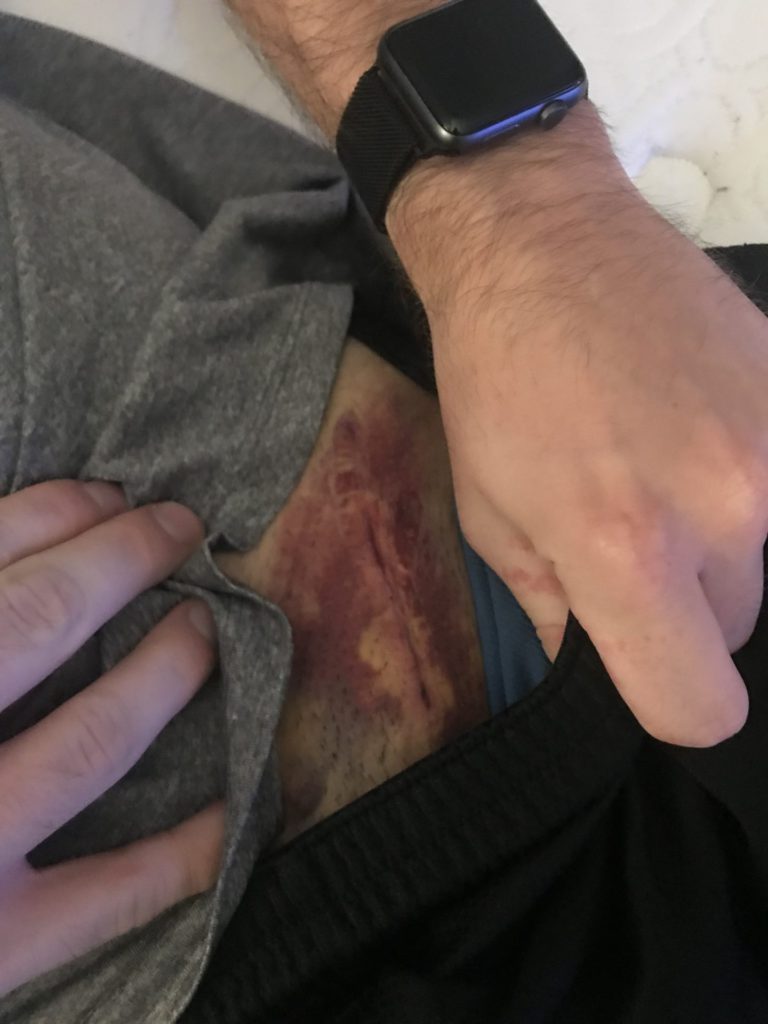
»MORE: Read more about patient experiences with surgery
Did they tell you your diagnosis before or after the surgery?
As I said, when he came in, he said “9 times out of 10 it’s testicular cancer,” but they don’t know for sure until they pathologize it. I don’t remember the exact breakdown.
I know that the Urology of Virginia did their pathology and then we sent it to Sloan Kettering and they came back with close but not exact, which, could just be they were looking at a different sample of it, but it was non-seminoma. That means it was a mixed type of cancer.
Turning a negative into a positive
I’ve always tried to turn negatives into positives. I knew that I wanted to make it my mission to not be down in the dumps about it and to spread awareness.
I never talked about testicles before my diagnosis and since then I’ve talked about it more than people are comfortable hearing. I just knew that I wanted to spread the word and use my story, however far my story went, to spread awareness.

I’ve always tried to turn negatives into positives. I knew that I wanted to make it my mission to not be down in the dumps about it and to spread awareness.
How and when did you start spreading awareness about testicular cancer?
I think it was the first time I went to my oncologist and he said, “This is something that’s not really talked about.” I did a vlog 17 days after my orchiectomy, I went go-karting, and we talked about that. He said, “If you keep up those vlogs, then people might find it and start talking about it.” So I did that.
I wanted to shave my head on my own accord before I lost it from chemo. I did a fundraiser for the Testicular Cancer Awareness Foundation and had connections to one of my action sports heroes, Travis Pastrana, through a mutual friend. I said, “If I raise X amount of dollars, will Travis shave my head?” He’s up in Annapolis, Maryland so it wasn’t a far drive. He agreed. I think I raised 2 or 3 times the amount in just a couple of hours. So we went up to Maryland and he shaved my head.
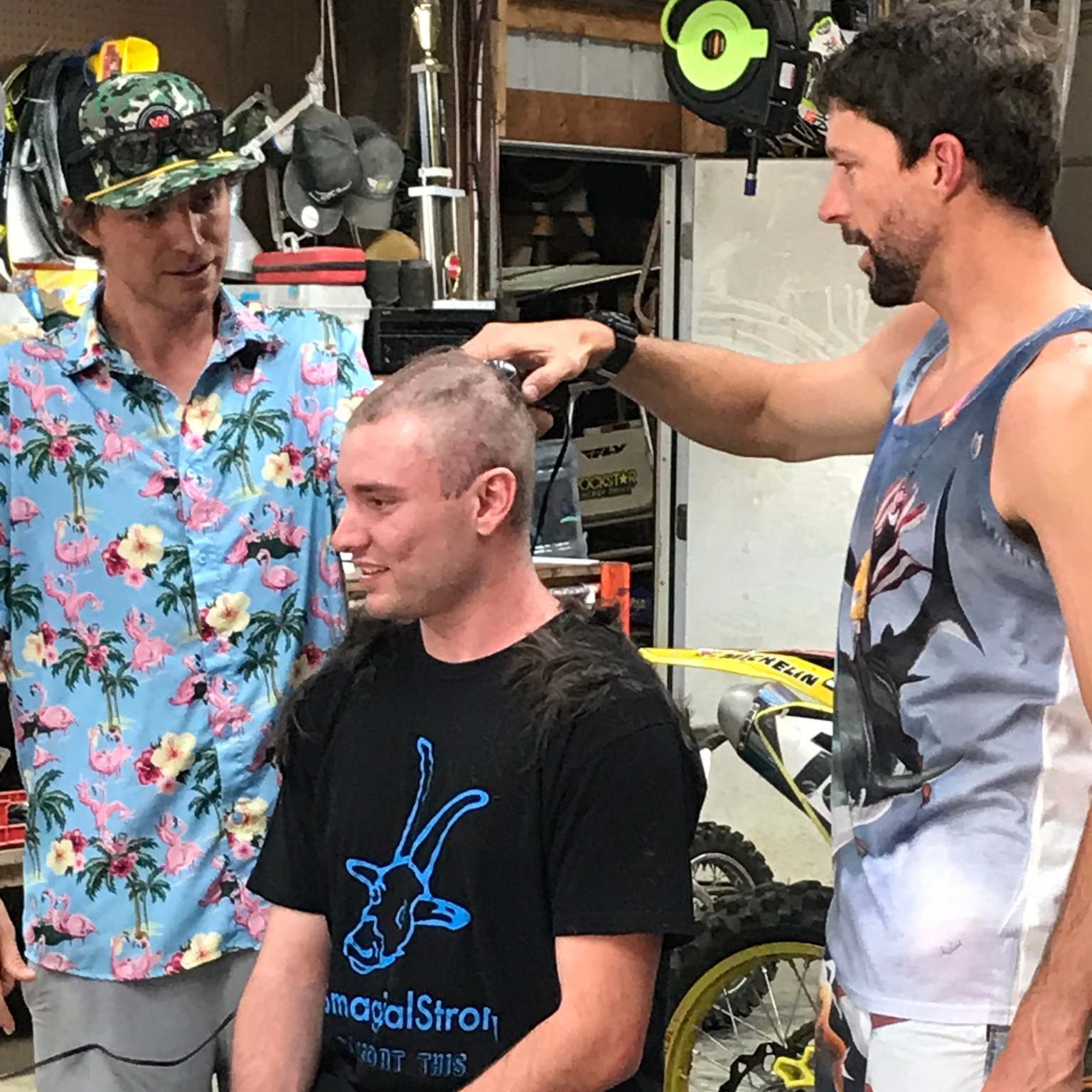
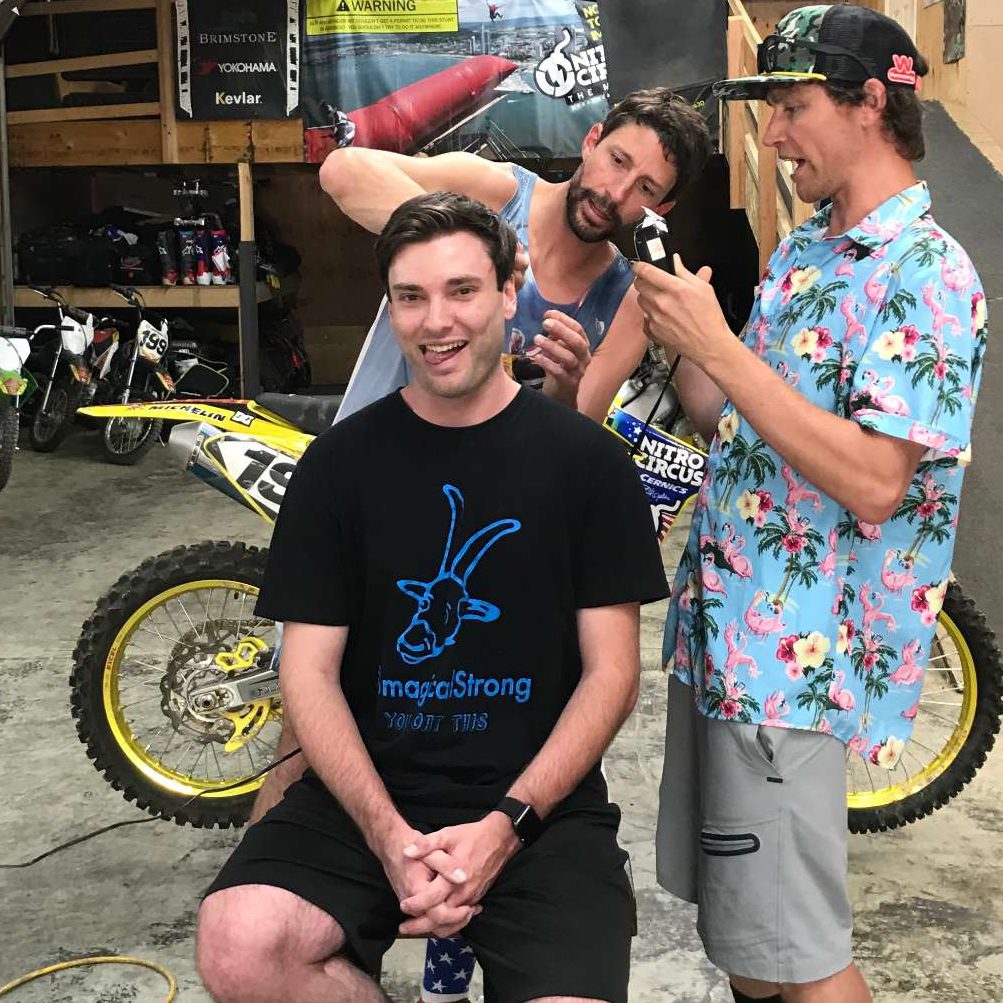
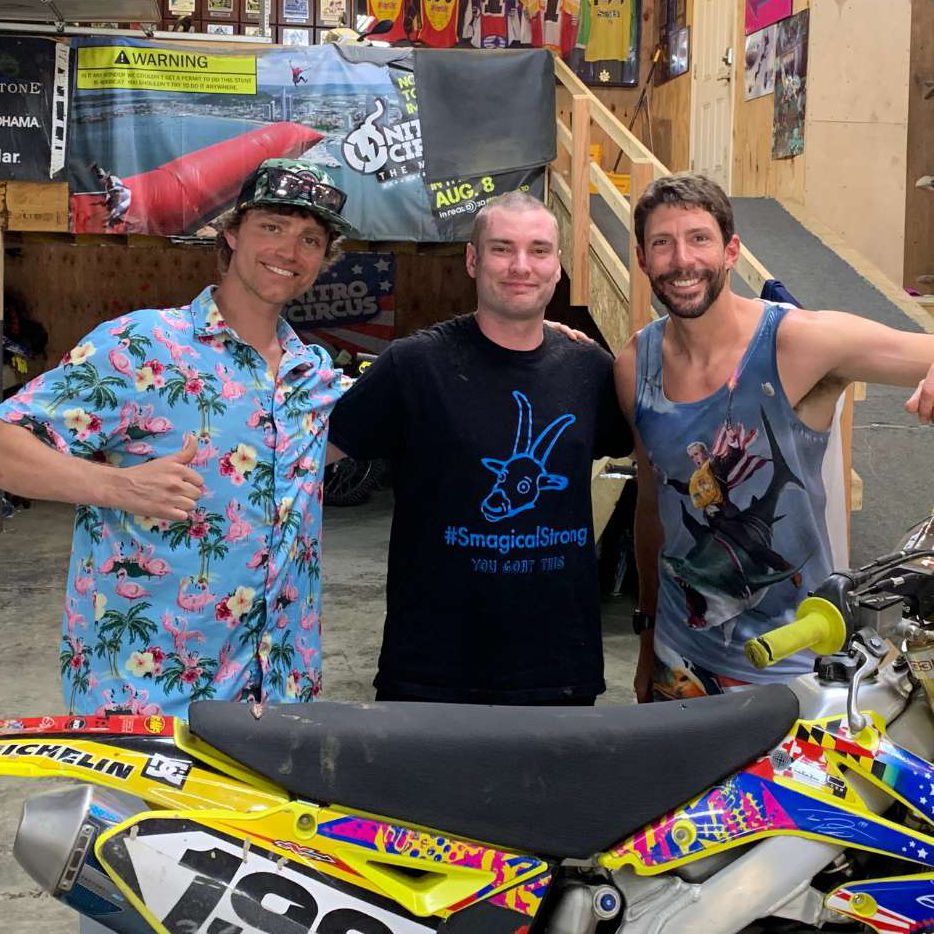
That got Testicular Cancer Awareness Foundation, Kim Jones the president. We formed a relationship from that. In survivorship, I’ve been on the board of the Testicular Cancer Awareness Foundation and now do a podcast, so it’s been fun.
Chemo & RPLND Surgery
Starting chemo
Because of the mass in my retroperitoneum, I had to do four rounds of etoposide and cisplatin, which is known as 4 times EP. It was 1 week on, 2 or 3 weeks off (depending on my white blood cell counts), another week, and then a break. So I had chemo from July 15th to October 4th.
Before chemo started, they do the chemo debriefing or chemo teaching. They went over everything that could happen. After the first week, I thought, “That was not anything near what they had talked about. It wasn’t nearly that bad.” But they did say that it compounded.
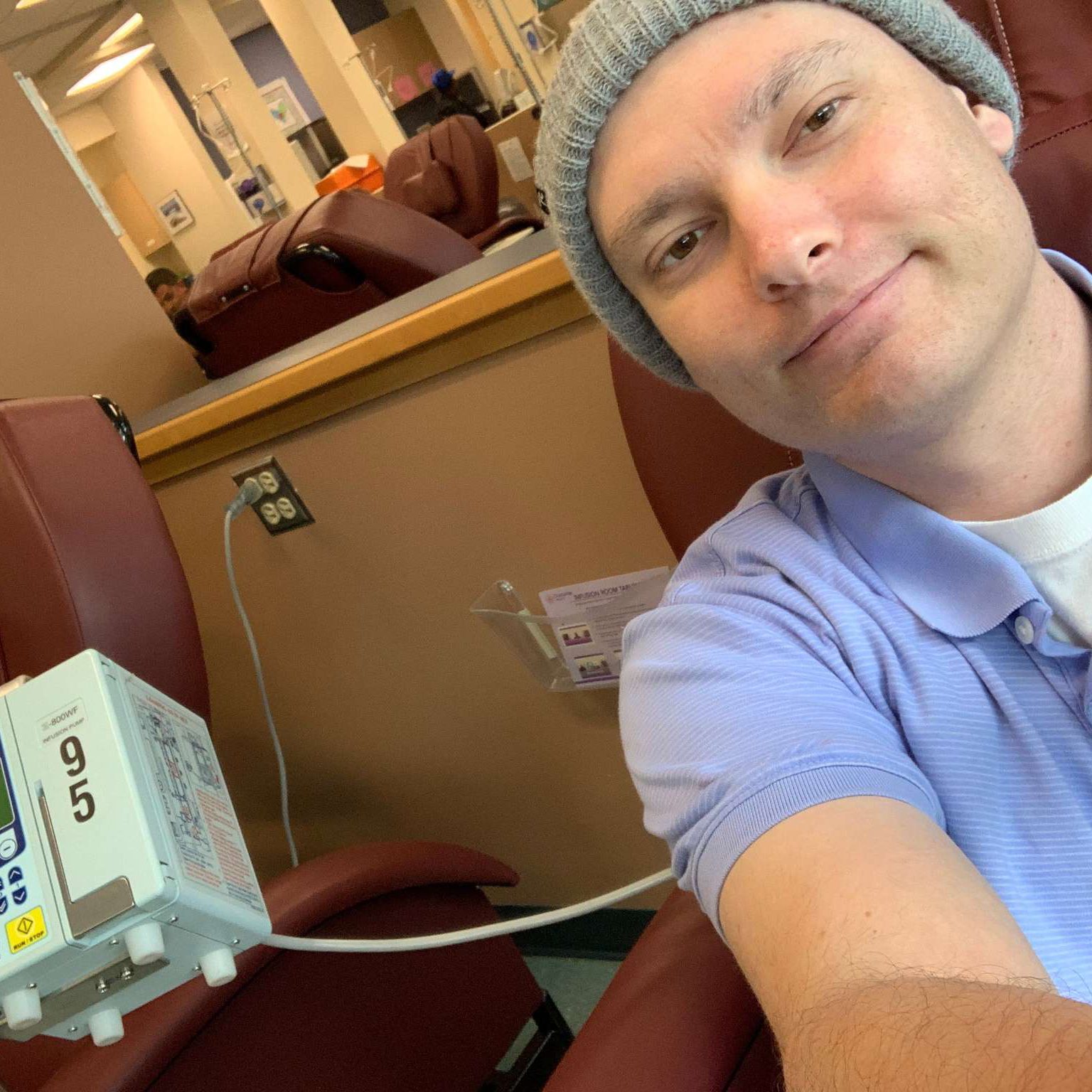
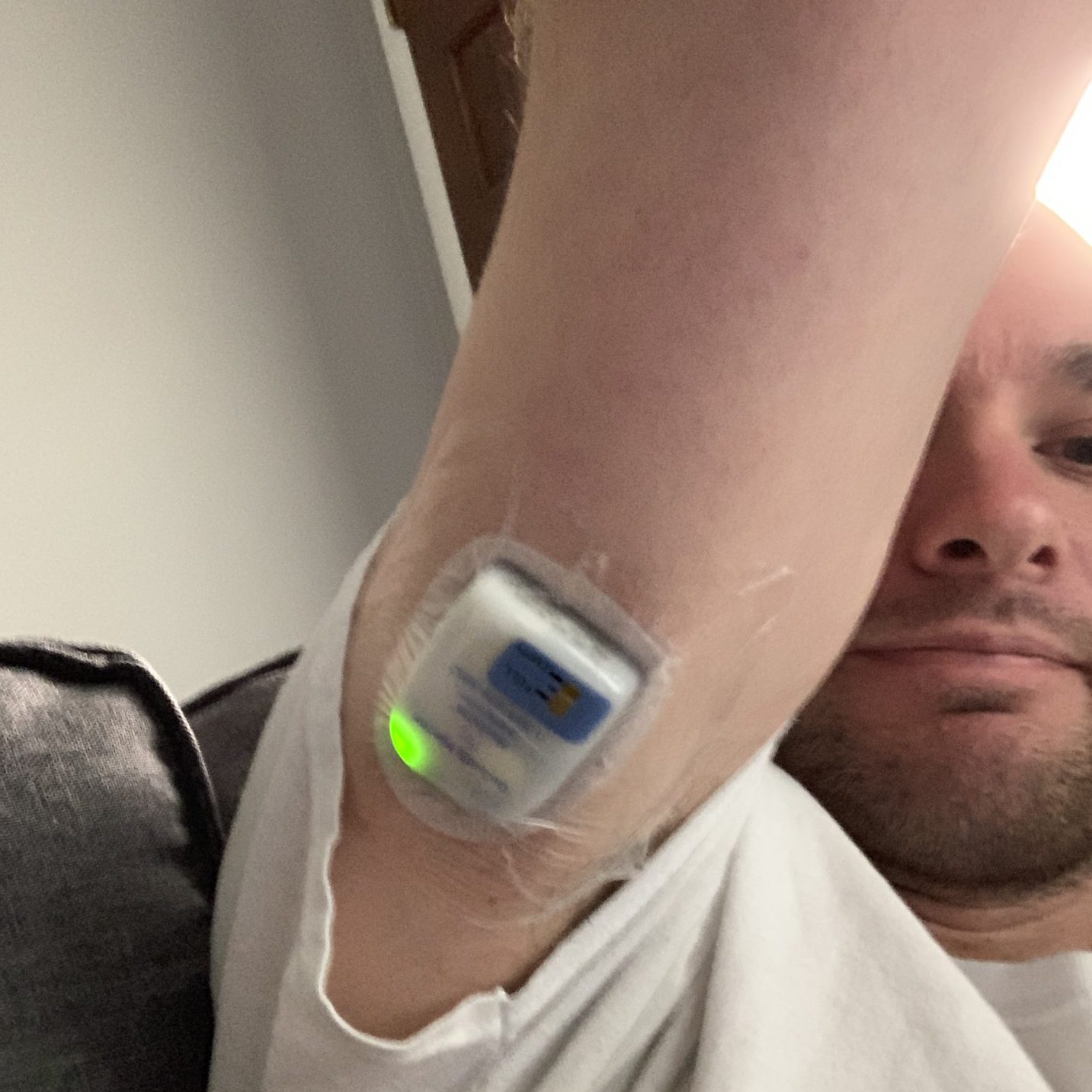
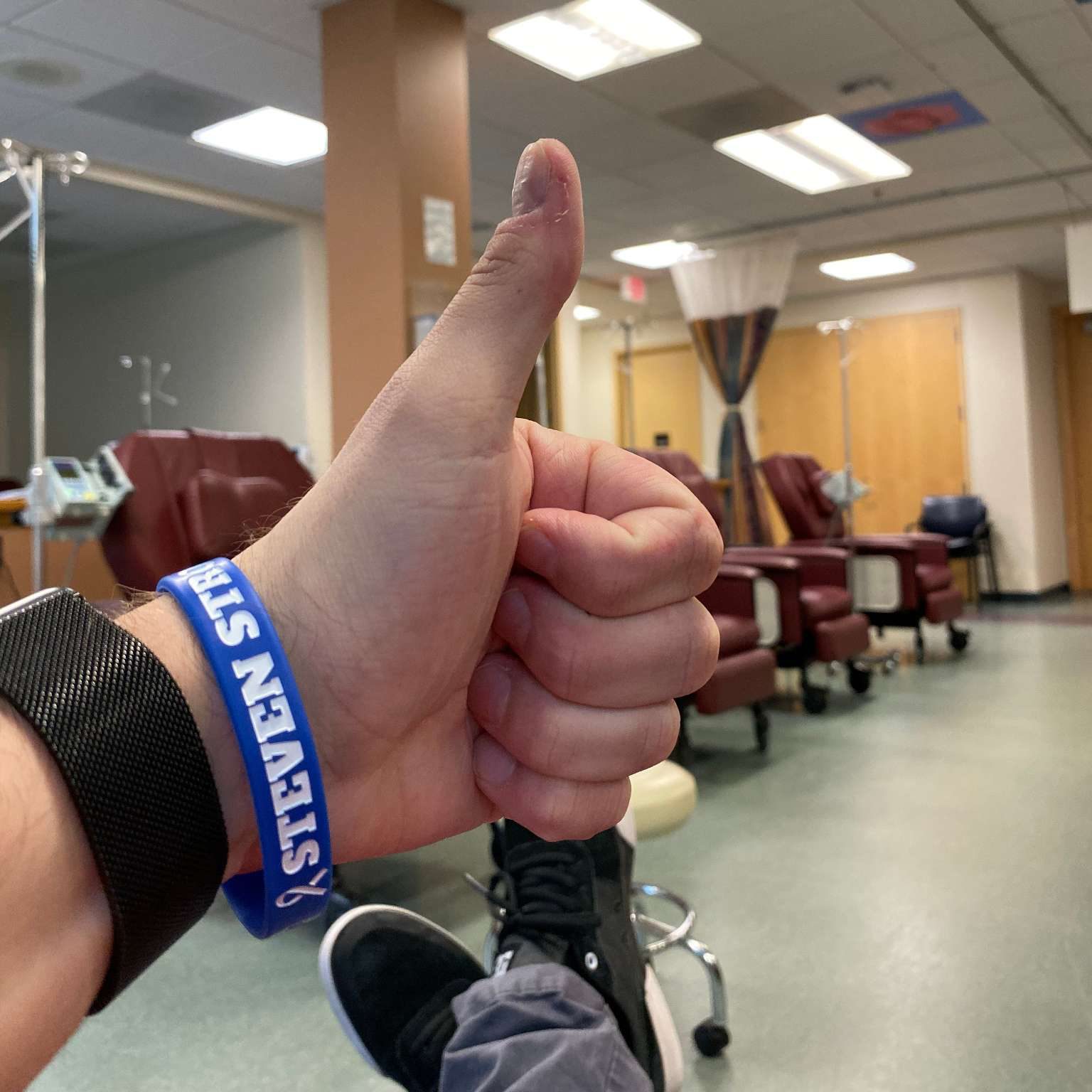
Did you have side effects from chemo?
Each week that went on got tougher and tougher. The first week, the first side effect that I had was uncontrollable hiccups. I tried drinking water, I tried everything that I could find [to get rid of the hiccups]. I found on Google, if you drink water from the opposite side of the cup, that it would work. I don’t know if that’s what did it but they stopped after that.
I didn’t throw up until the last week. I remember I was in my kitchen. My parents took turns staying with me. One stayed at their house with the dog and the other came over to my place. I was reaching into my fridge and I immediately turned around and just threw up everywhere. My dad said, “Don’t worry about it. I’ll clean it up.”
Did you take anything for nausea?
I was nauseous the whole time. They advised taking the Zofran that they prescribed me. I took it in the morning, I took it at night and then whatever they gave me daily, helped with nausea.
»MORE: Managing Nausea and Vomiting from Chemotherapy
Post-chemo RPLND surgery
After chemo, I had a post-chemo CT scan and it showed that the mass in my retroperitoneum had shrunk, but it wasn’t small enough to completely rule out that everything was gone.
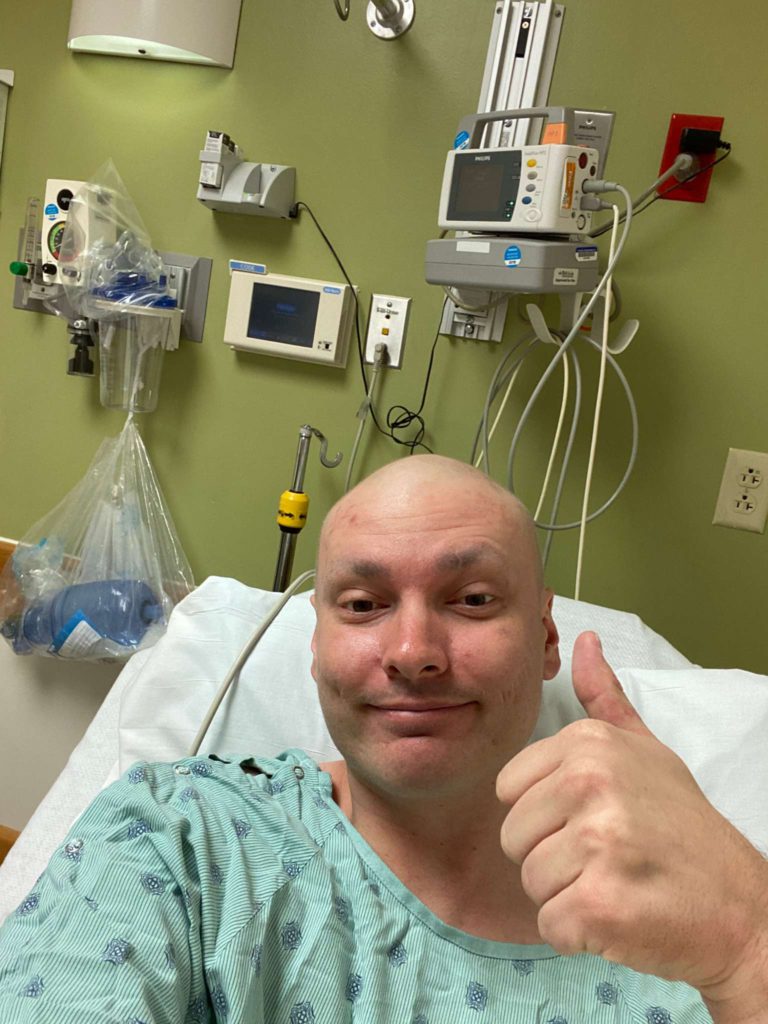
My doctor was Dr. Clint Cary at Indiana University (IU), who’s one of the top guys in the United States for retroperitoneal lymph node dissection (RPLND). They got me on the schedule at IU for the RPLND, and I had an RPLND on November 7th, 2019.
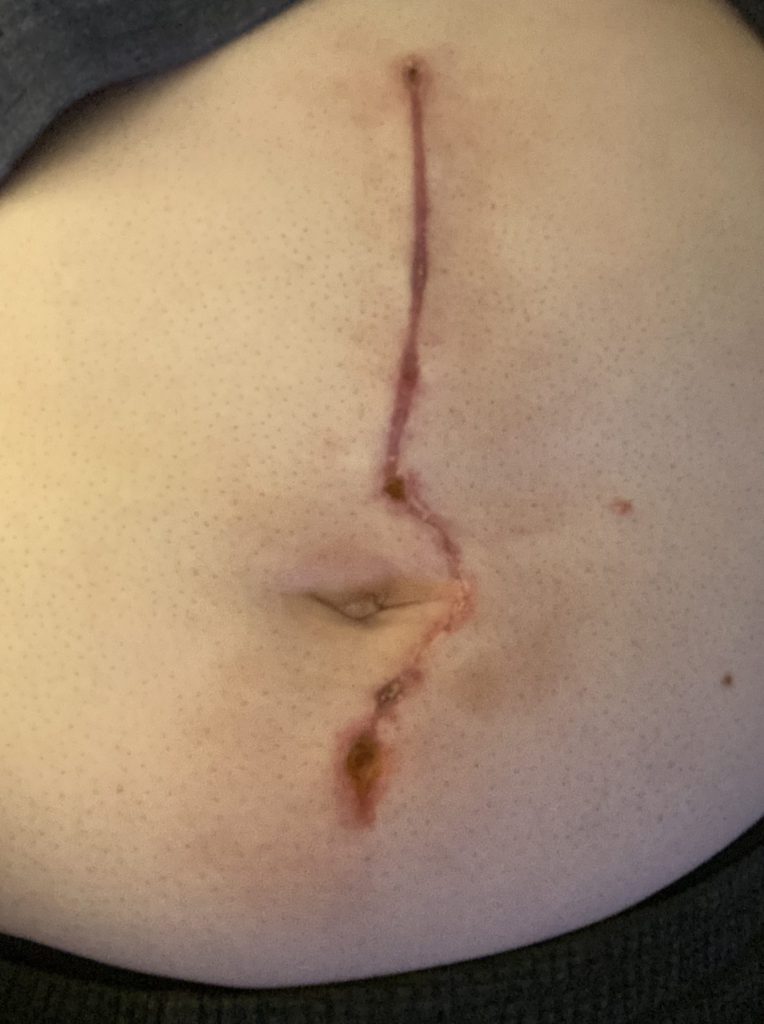
Luckily, Dr. Cary called me with the pathology and said what was remaining was scar tissue from dead cancer. There’s no way to know until it’s pathologized. I’m not a doctor, but I believe that teratoma does not show up in bloodwork. So they could have done all the bloodwork that they wanted and they wouldn’t have known that it was scar tissue.
How did you respond to needing another surgery?
I wanted it to be done and I trusted my doctors. I told Dr. Cary before my surgery, “I’m just going to lay here and let you do the hard work.” I was just along for the ride.
I was very thankful to my parents. I was still 25, so I was on their insurance. They did the brunt of the worrying for me and I just rode the roller coaster.
Spreading Awareness
Having a support system
Support is crucial to this, however you can get it. Unfortunately, some people with testicular cancer don’t have the family that they should have with them, because of family issues.
I’m super thankful that my parents, grandparents, aunts and uncles, and all my work people put up with me talking about my testicles the whole time. Them being a sounding board for whatever dark humor I had and being able to do the worrying for me made the journey a lot easier for me.
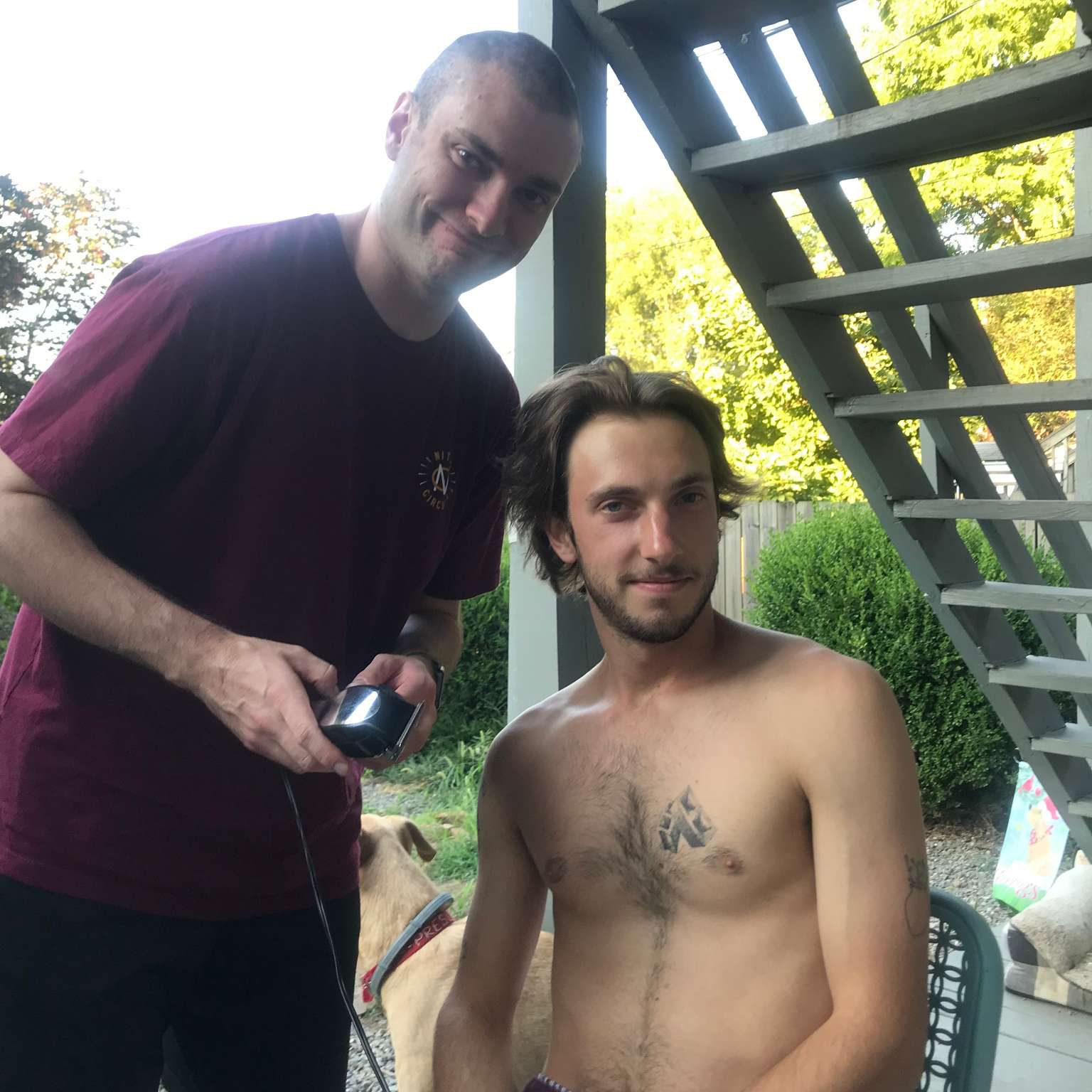
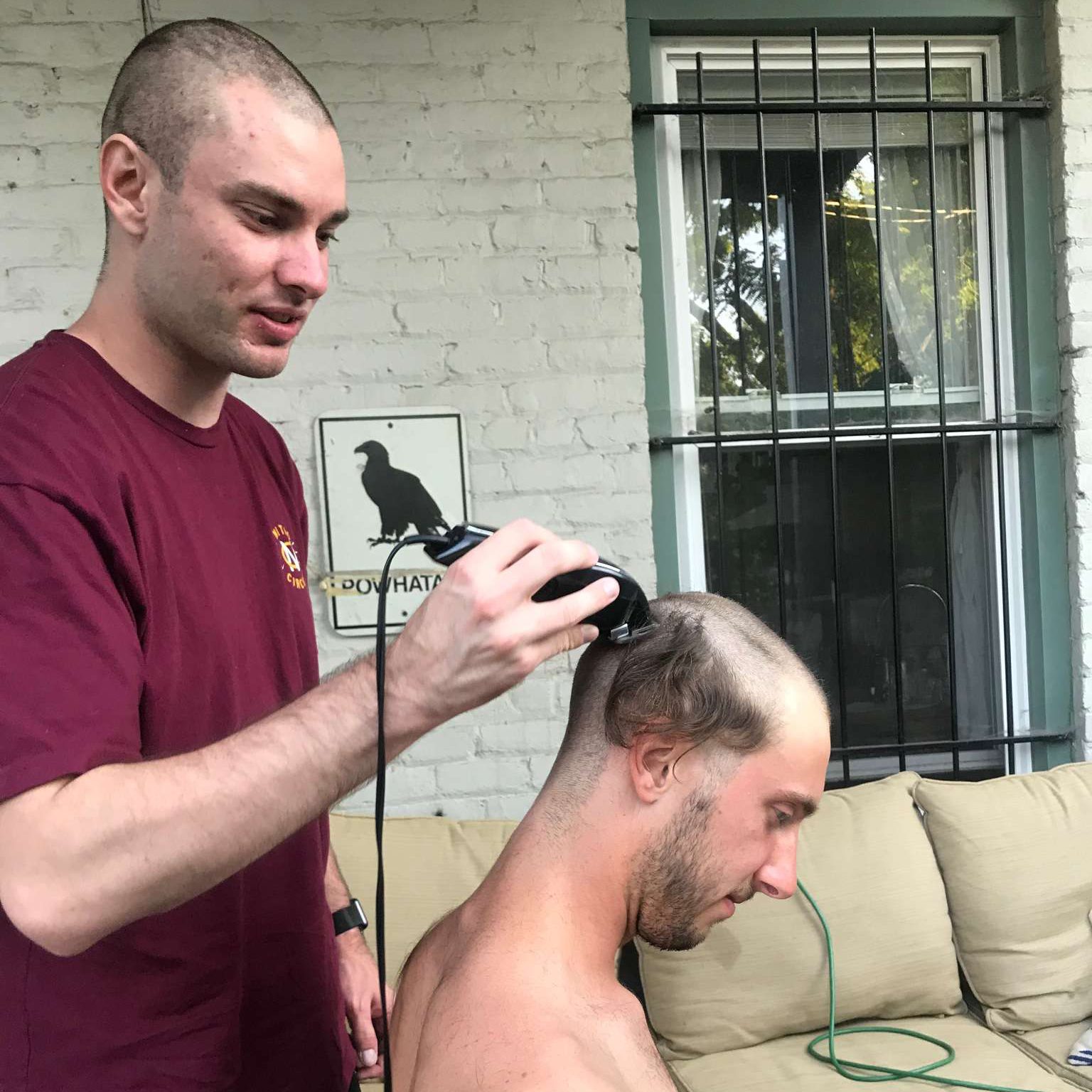
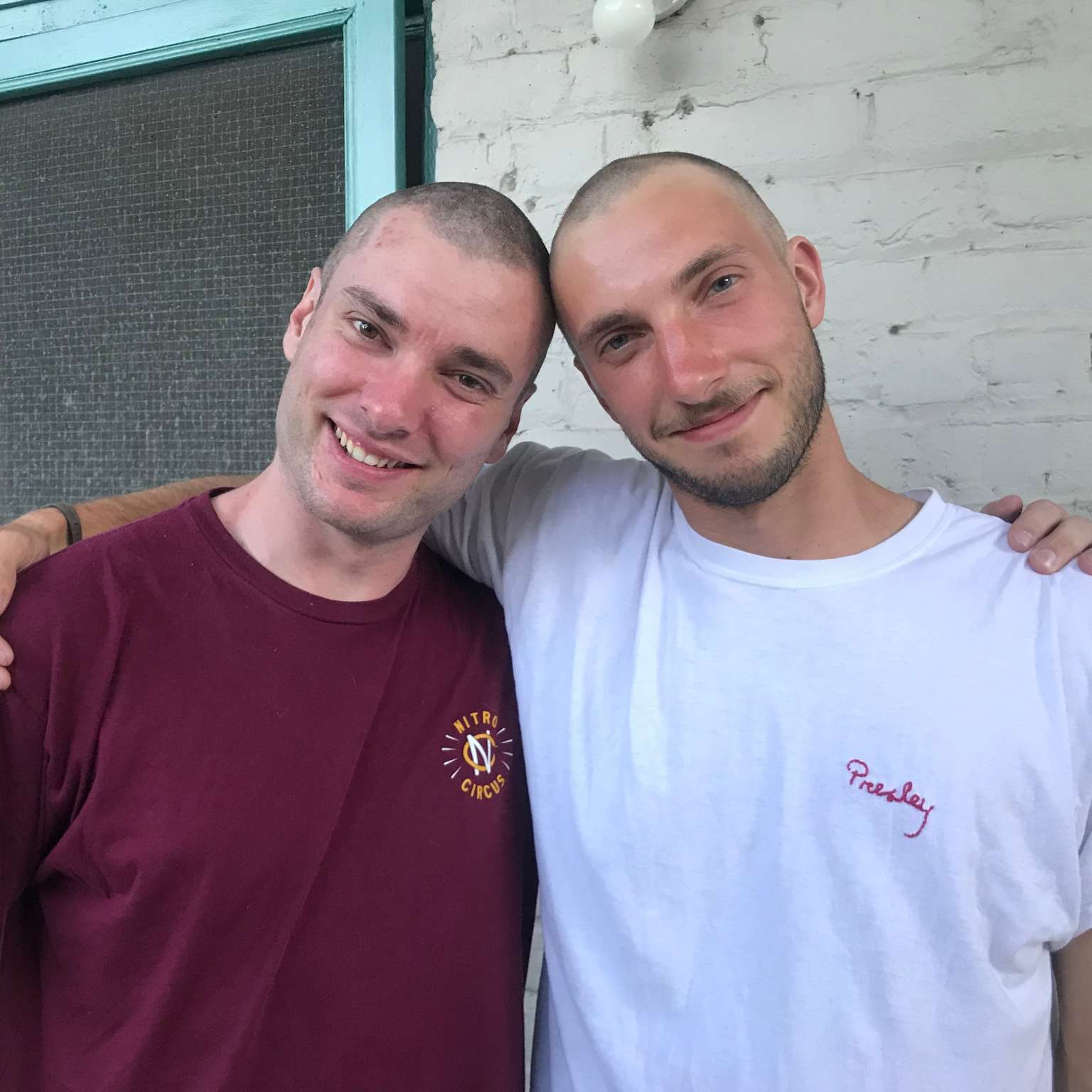
Support is crucial to this, however you can get it.
How did your work respond to your having cancer?
I’d been through chemo and my work was super supportive. Everybody at work was really helpful. Right before my RPLND, I sent an email to HR to send out to everybody, thanking them for the support. I put in [the email], “Thanks for allowing me to joke about my testicular cancer.” They took out the word “testicular.”
Six months later when I returned, I emailed the HR lady and asked, “What’s up with that?” She said, “Some people could find it offensive.” I said, “I’m the one that had it, and I’m offended that you took it out.” People are still not talking about it as much as they should.
Luckily, on the ground level with all the other employees, it was something that they, hopefully, became more comfortable talking about. They were at least pity-laughing.
Empowering people to talk about testicular cancer
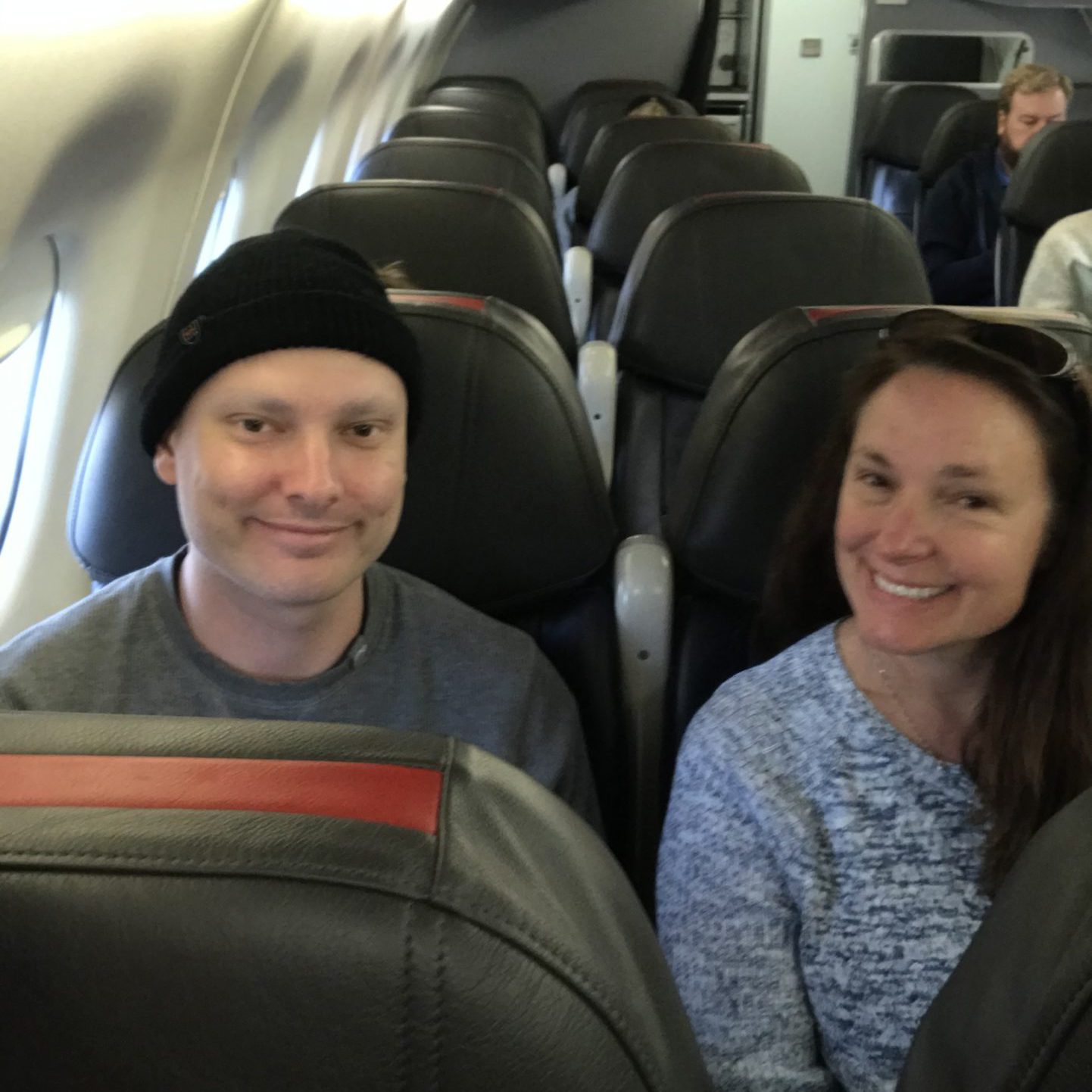
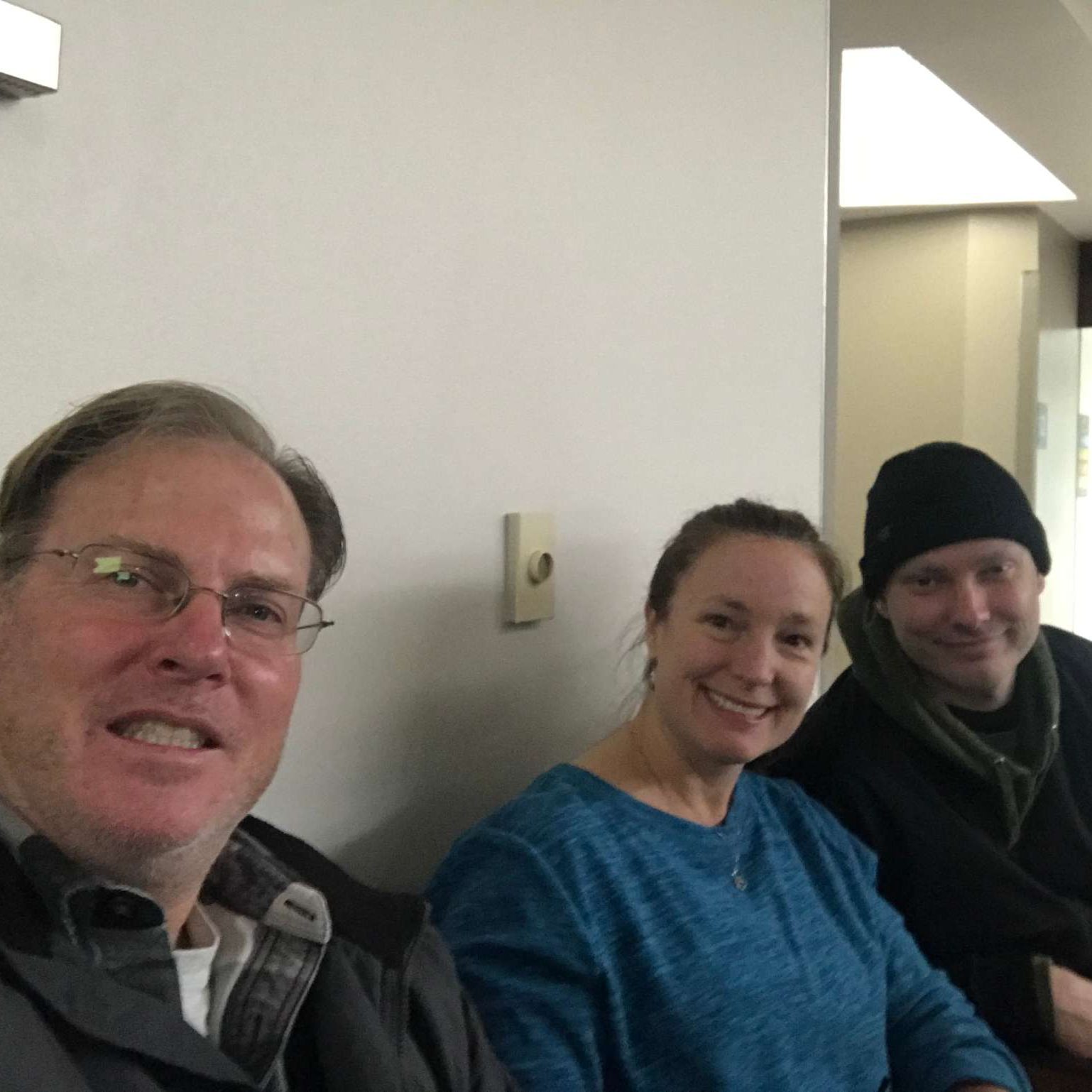
I don’t know how many people are searching for testicles online. Maybe there are some people out there that are doing that, but I think the people who are finding podcasts are the ones who are searching specifically for testicular cancer.
There are some guys that don’t want to share their stories, and that’s okay. They can see that there are people talking about it and it’s not something they need to stay in the shadows about. Maybe one day they’ll feel comfortable talking about it, but right now is not the time. For them to see these stories, hear other people that have been through it, and know that they’re not alone, is important.
Do you still get “scanxiety”?
Scanxiety is a real thing. April is Testicular Cancer Awareness Month, and I like to say that I’m very aware. Even though I talk about testicular cancer all the time, April gets me. I really start feeling like, “Is that lump back in my back?” I think it’s just my mind playing tricks on me, but it’s important to get checked out if you feel things.
I just had another ultrasound last week and luckily it was all good, but it definitely messes with your head a lot. Before blood work, you get nervous.
I’m hypocritical in that I was feeling something for a while and it took me a while to get in. My mom and my wife were both really pushing me. That’s where the network around you is good too. Even if you’re feeling something, you’re still afraid and have PTSD, like I do, having those support people around you who can, say “You need to go get checked out. I’ll make your appointment for you.” I made my own appointment, I’m a big boy. But, that’s important.
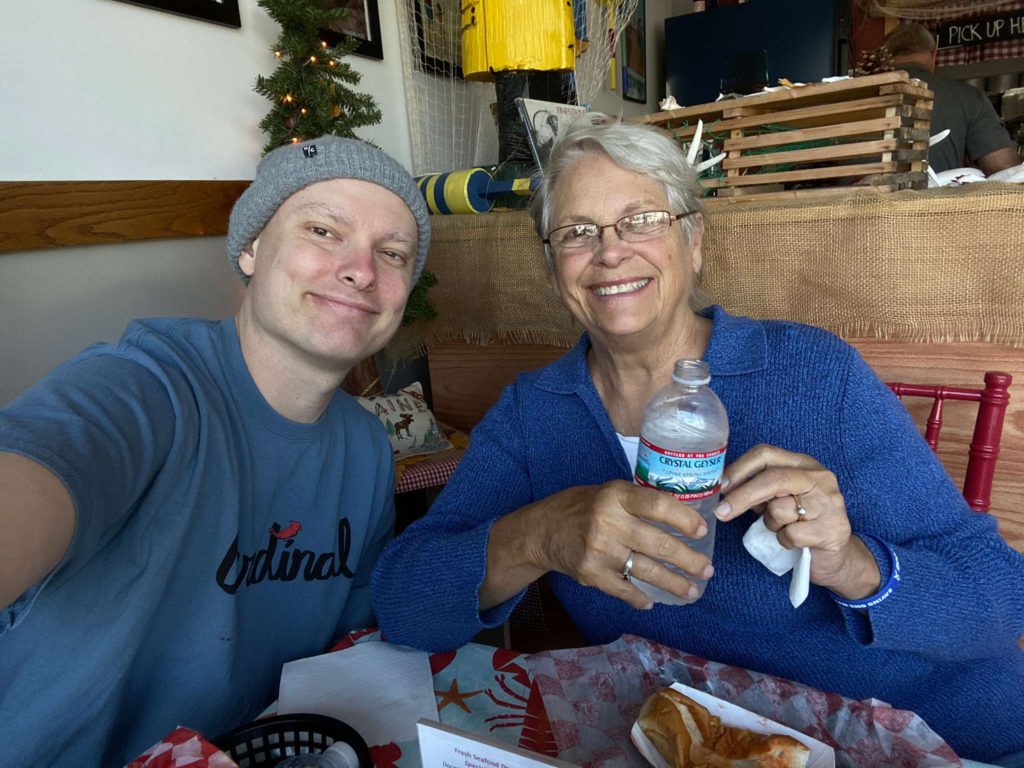
Even though I talk about testicular cancer all the time, April gets me. I really start feeling like, “Is that lump back in my back?” I think it’s just my mind playing tricks on me, but it’s important to get checked out if you feel things.
What would you say to someone who hasn’t been examined by their doctor?
People who are at the beginning stage, feel something is wrong and haven’t yet been seen, I would say, go be seen. Worst case, the doctor feels your nuts and it’s an awkward situation for you. It might feel awkward to you, but it’s not for them. They do that all the time.
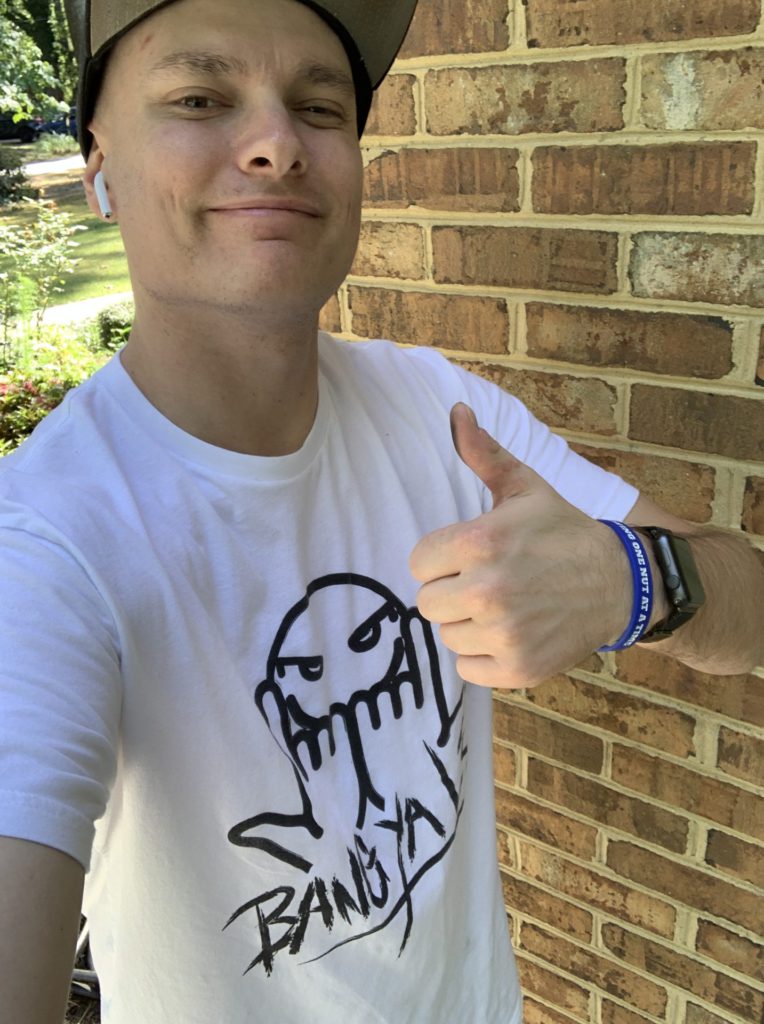
Early detection is going to save lives. It’s not going to save every life, but it’s going to save you from at least having further metastasis. You can catch it early. It won’t spread to the retroperitoneum, like me, if you catch it in the testicle. Early detection is really important and there are resources online to show how to do a self-exam.
Self-exam is not about finding something on the first try, but the goal is to familiarize yourself with what your normal is. Then, if you find something that is not normal, then you know right away that you have to go get seen.
Where can people learn more about testicular cancer?
- TesticularCancerAwarenessFoundation.org is the website.
- Testicular Cancer Awareness Foundation on Facebook.
- @testescancer on Instagram and Twitter.
- You can see the podcast, It Takes Balls, and regular self-exam reminders.
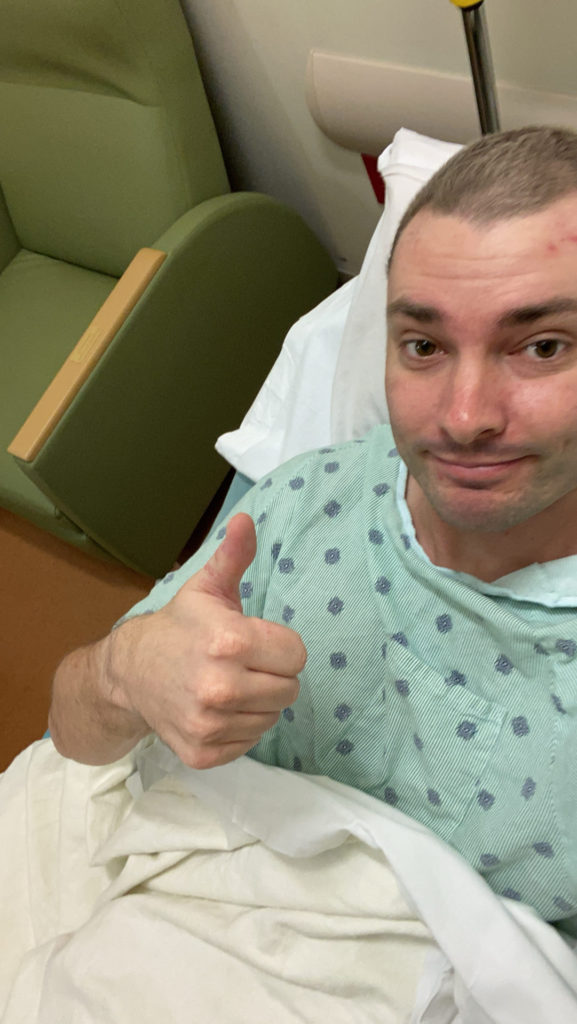
Supporting others and finding support
I have not been to therapy but I did have a therapist on the podcast recently and it’s definitely something that I’d be open to. My doctor gave me the contact information of other patients that he had. He asked them for their permission as well.
I reached out to one of them, but there have been other guys that he’s given me their numbers when they’ve been going through it, as I’m a survivor. We’ve got a local testicular cancer group chat that is going and we say, “We got a scan coming up.” “Good luck.” It’s important and it’s helpful.
Testicular Cancer & Fertility
Advocate for banking sperm as early as possible. Don’t let them start chemo before you bank sperm.
Banking sperm and checking testosterone levels
I don’t know that the norm is to bank sperm before orchiectomy. I know that they like to turn around and do the orchiectomy quickly. I would say, advocate for banking sperm as early as possible. Don’t let them start chemo before you bank sperm. If you can bank some before your orchiectomy, that could be helpful.
I don’t remember having my testosterone level checked before my orchiectomy, but testosterone is something that can be affected by losing a testicle. You only need one to make it, but the levels can change, and having that kind of base will be helpful in seeing if something’s off down the line. I think I only got mine checked a year and a half later, so I don’t have a baseline of what my normal was before that.
How did you decide to bank your sperm?
After the orchiectomy, they scheduled sperm banking. One doctor I talked to recently – his episode of the podcast will be out May 1st – he advocates for having it earlier. He said, in some cases, there’s no sperm before the orchiectomy because the testicle is doing whatever it’s doing. Definitely get it as soon as you can.
That was one of the things that were scariest for me – I’d always wanted to be the T-ball coach – and losing my hair were the big things that I was most afraid of. Banking was a no-brainer for me. Hopefully I don’t have to use it.
RPLND and fertility
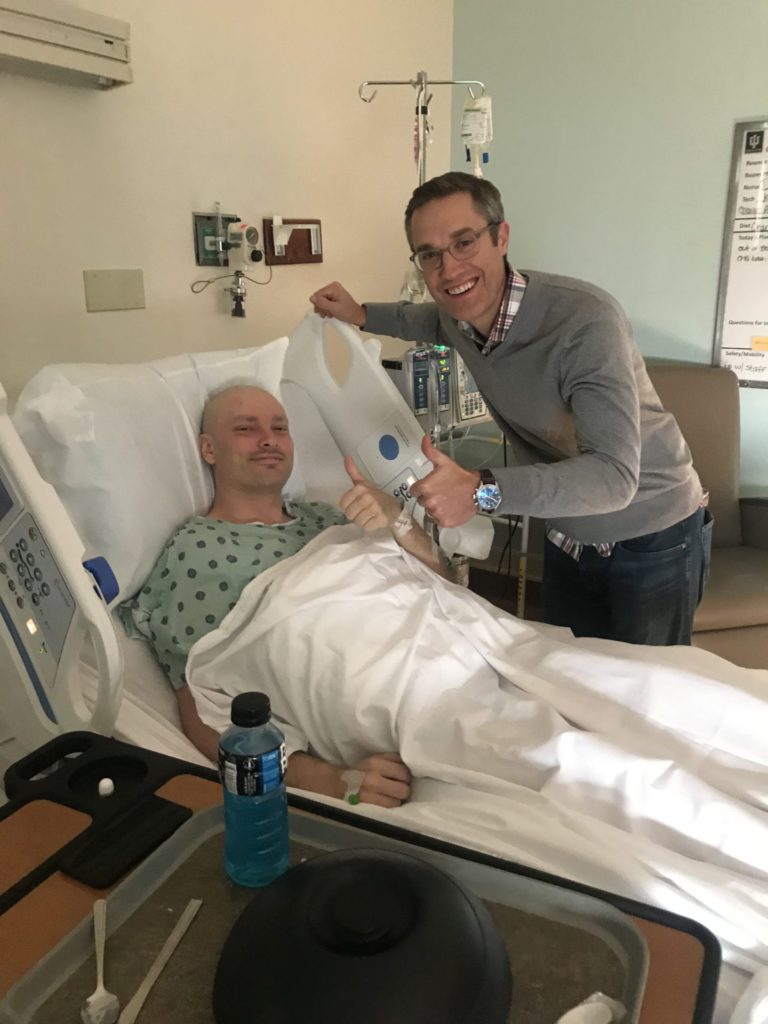
There is a risk with the RPLND (retroperitoneal lymph node dissection) to have a side effect where they accidentally, or out of necessity, cut the nerve that controls the ejaculatory function. That can cause retrograde ejaculation, then it’s going to be more difficult to conceive naturally.
I hope I don’t need to use my bank sperm. I think everything is working as it should now, but we’ll see how it goes.
As far as the RPLND and the retrograde ejaculation go, I would advise going to, what they call, a high-volume center. There are only so many urologists in the world or in the country and there are only so many testicular cancer cases. Even fewer than there are urologists. They might not see testicular cancer all the time and [they] do an RPLND even less.
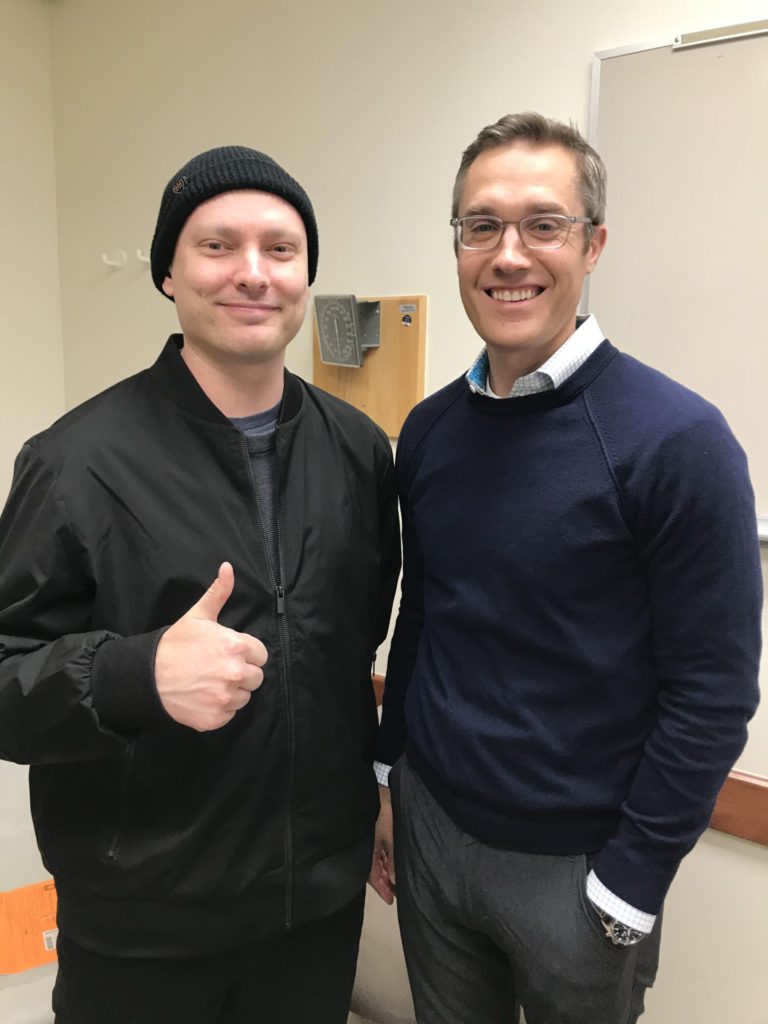
Where I went at IU, Dr. Cary is one of the best guys in the country to do it. It’s not a guarantee, but it’s more likely that they will do what they need to do to avoid retrograde ejaculation.
Reflections
Can you recommend doctors who specialize in testicular cancer?
On the TCF website, we have Dr. Phil Pierorazio – he’s chief of urology at Penn Presbyterian. His contact information is on the website. Dr. Nicholas Cost in Colorado – his information is on there.
Dr. Larry Einhorn at IU. I think he’s in his 80s now, but he pioneered chemo for testicular cancer and has saved an immeasurable number of lives. He’s usually pretty good about responding to emails. My mom emailed him a few times and asked questions and he gets back within 24 hours. His contact information, if it’s not on the website, join the support group and people will gladly give it to you.
There’s Dr. Aditya Bagrodia in San Diego. There are a bunch of them all over the country who do this stuff regularly.
How has testicular cancer changed your outlook on life?
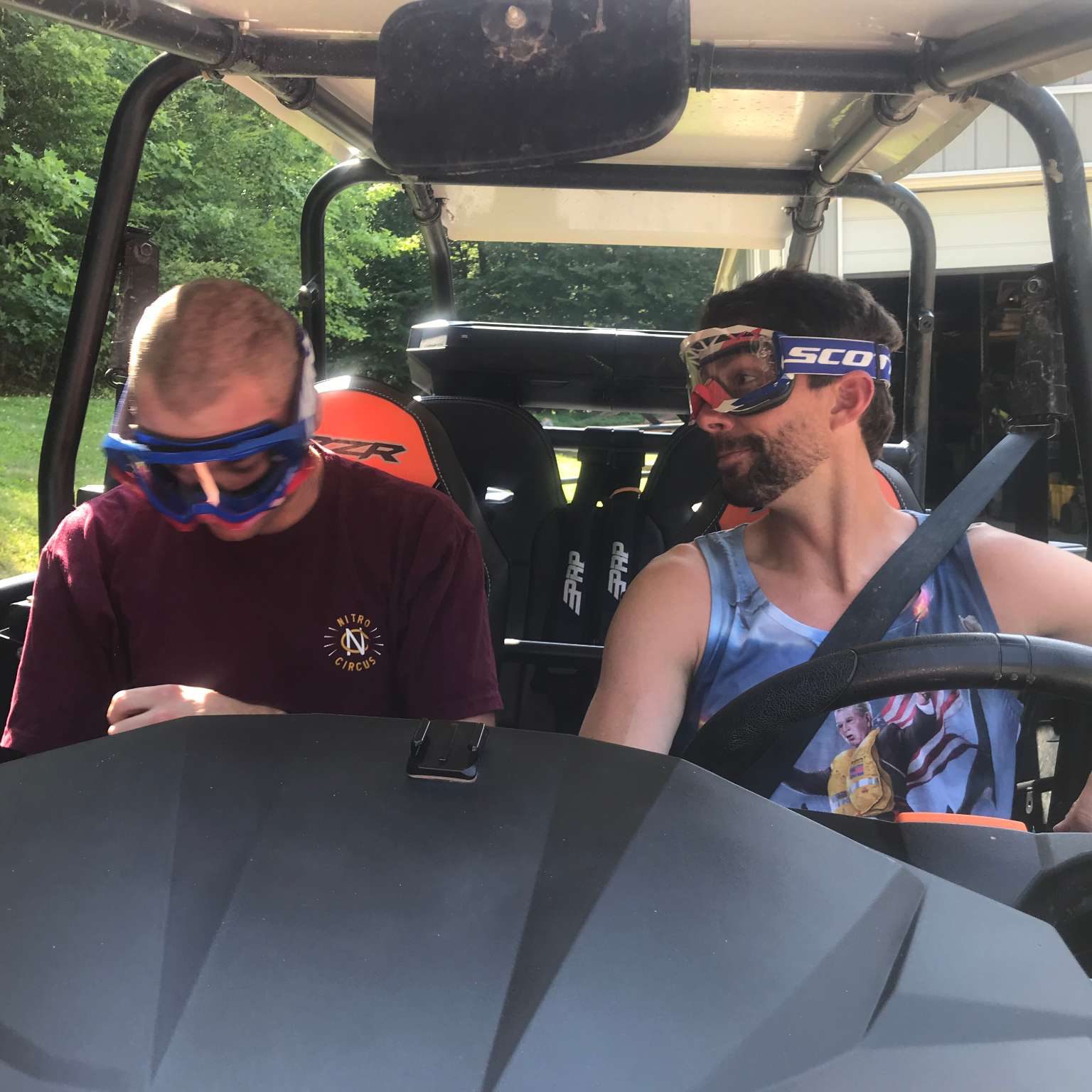
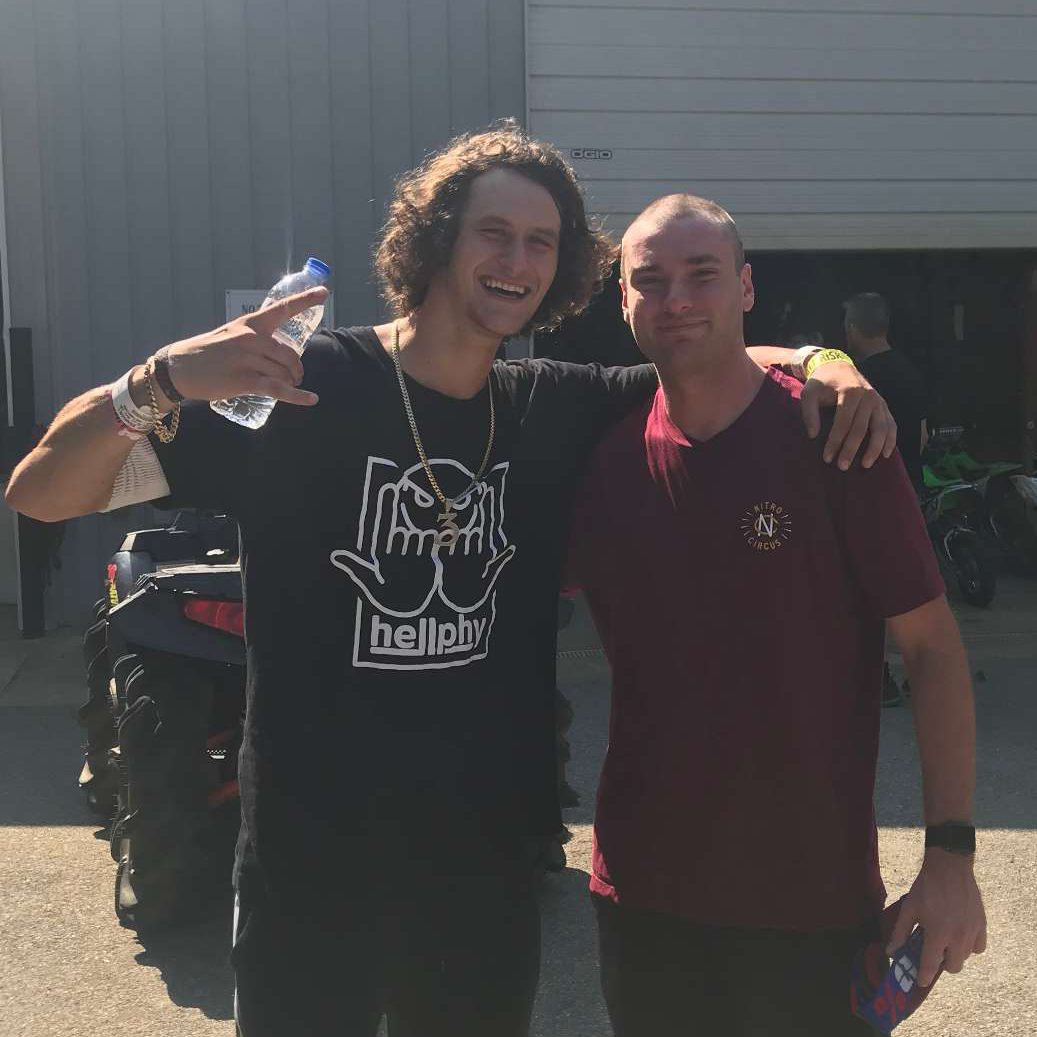
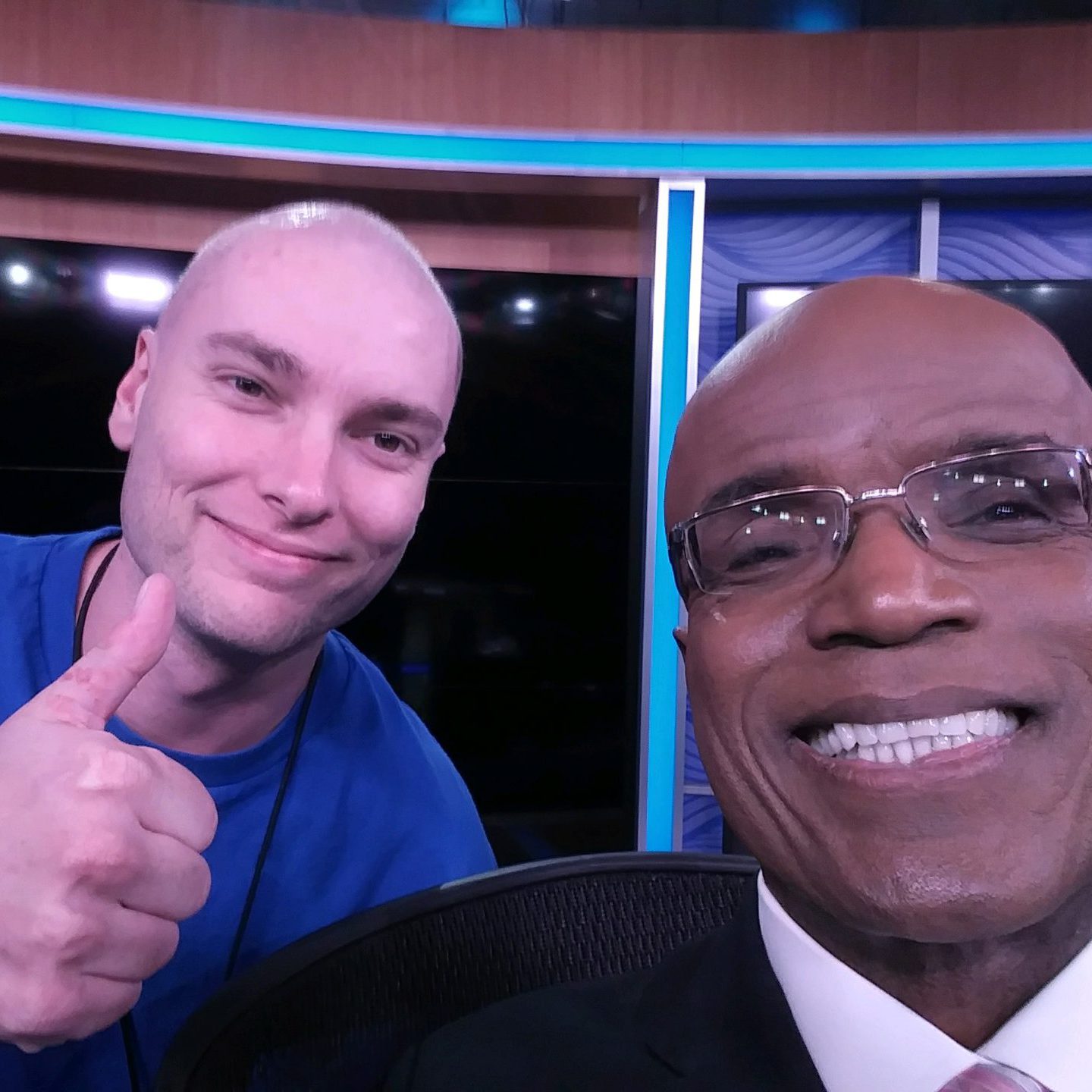
There’s been so much good that’s come out of it. I’m doing things that I never would have done…I’m trying to live my life more to the fullest than I was before.
Having had testicular cancer, I don’t think it was the worst thing to ever happen to me. There’s been so much good that’s come out of it. I’m doing things that I never would have done. For example, I just took a stand-up comedy class. In high school, people who knew me never would have thought that I would do something like that.
There are good things that can come out of this. You have a new lease on life. After sitting in the chemo chair for 4 to 6 hours a day, you wish you could be doing anything else. I’m trying to live my life more to the fullest than I was before.
More Testicular Cancer Stories
Matt B., Testicular Cancer (Embryonal Carcinoma, Metastatic)
Symptoms: Severe lower back pain, loss of sensation in left leg, dizziness, fatigue, night sweats, heart complications
Treatments: Surgeries (retroperitoneal lymph node dissection or RPLND, orchiectomy, liver resection, hernia repair surgery), chemotherapy
Josh T., Testicular Cancer, Stage 3A
Symptoms: Pain in his chest, lower back, and abdomen; shortness of breath, especially during exercise; mass found on one testicle
Treatment: Chemotherapy
Steven C., Testicular Cancer (Non-Seminoma), Stage 2B
Symptoms: Enlarged left testicle, tenderness in left testicle, lump in back (retroperitoneum)
Treatments: Surgery (orchiectomy and retroperitoneal lymph node dissection), chemotherapy
Matthew O., Testicular Cancer (Non-Seminoma), Stage 3C
Symptoms: Fatigue, one swollen testicle
Treatments: Chemotherapy, surgery
Hugo T., Testicular Cancer (Non-Seminoma), Stage 2B
Symptom: Pea-sized lump on right testicle
Treatments: Surgery (removal of right testicle, lymph node resection), chemotherapy
Steve L., Testicular Cancer (Non-Seminoma), Stage 3C
Symptoms: Grape-sized tumor on neck; hip and pelvis pain; tumor on right testicle
Treatments: Chemotherapy, surgery (removal of right testicle, lymph node resection, and tumor dissection in the neck)
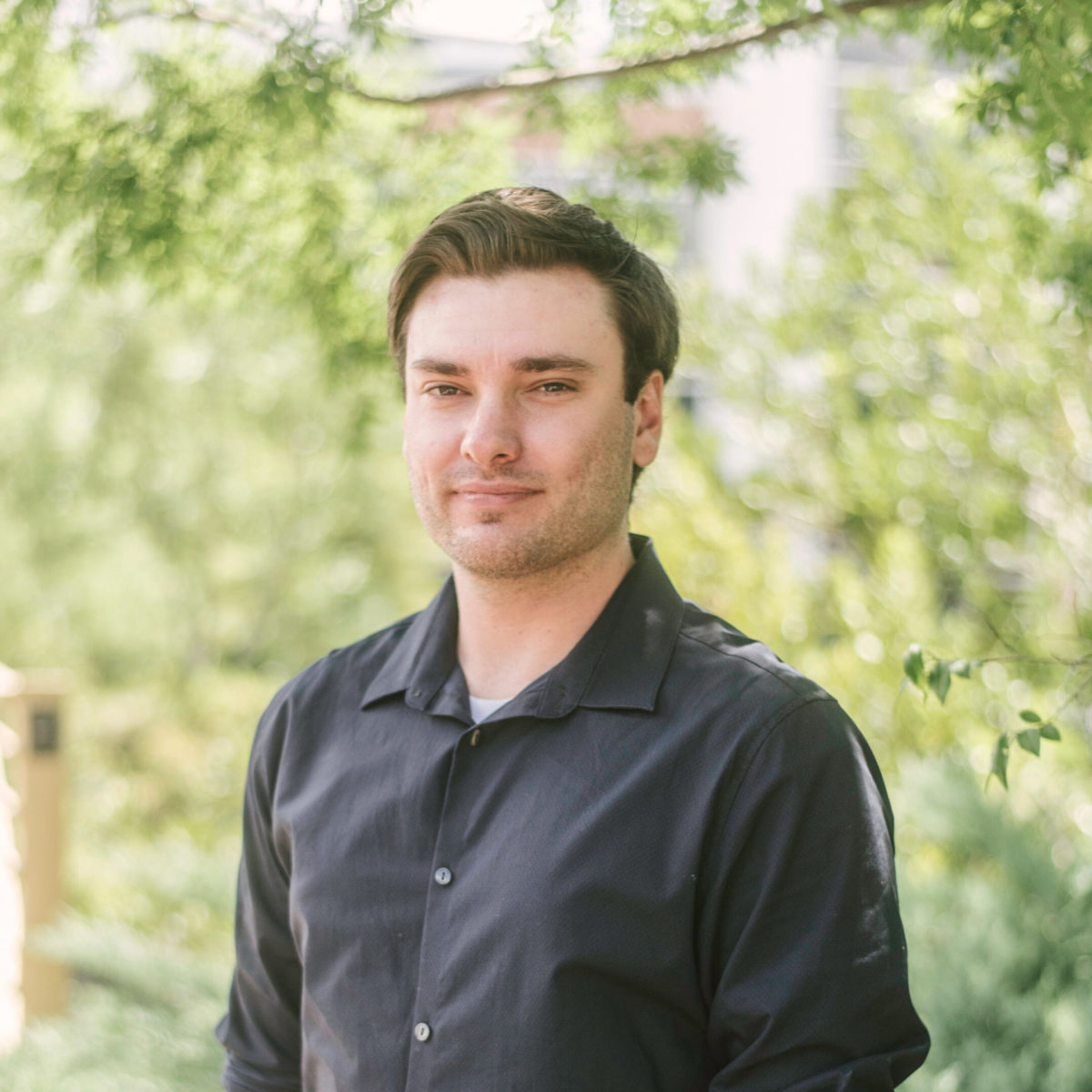
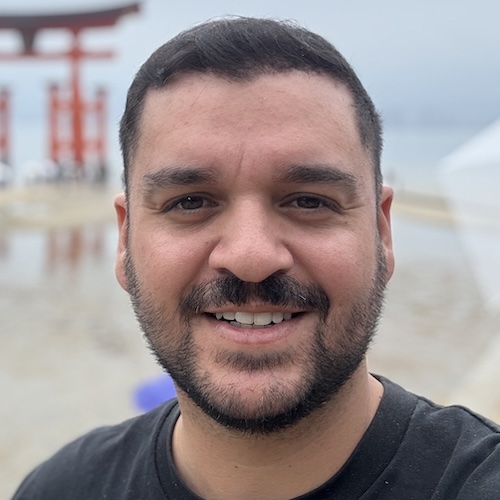
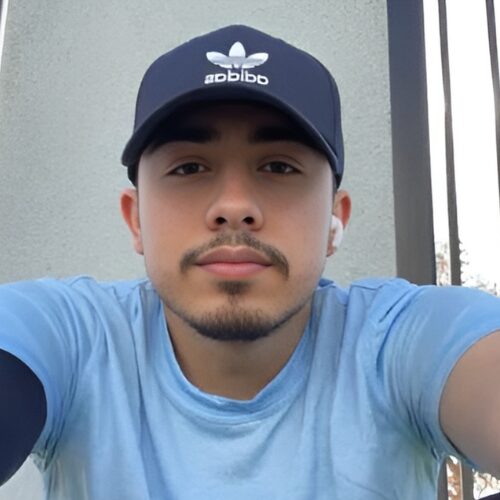
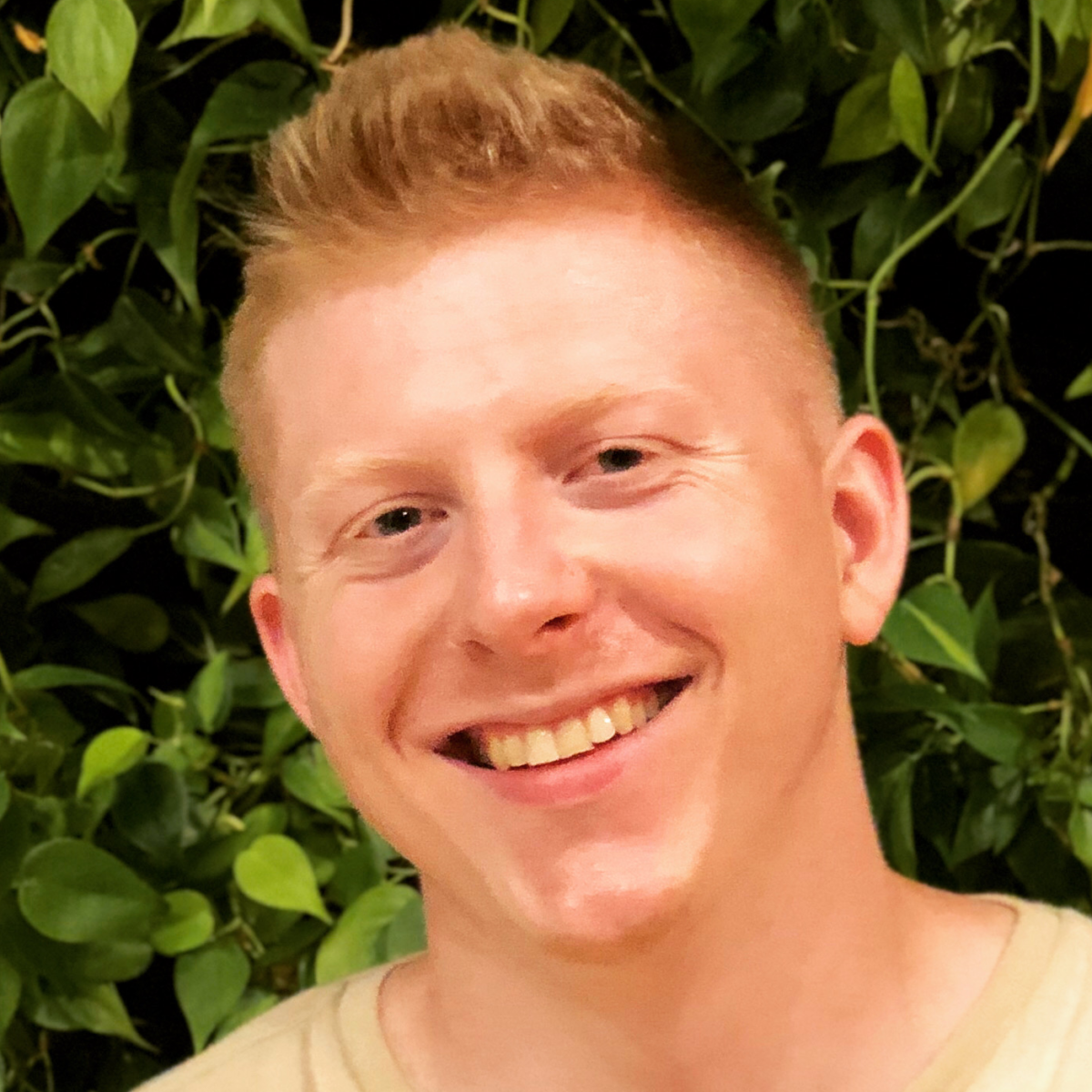
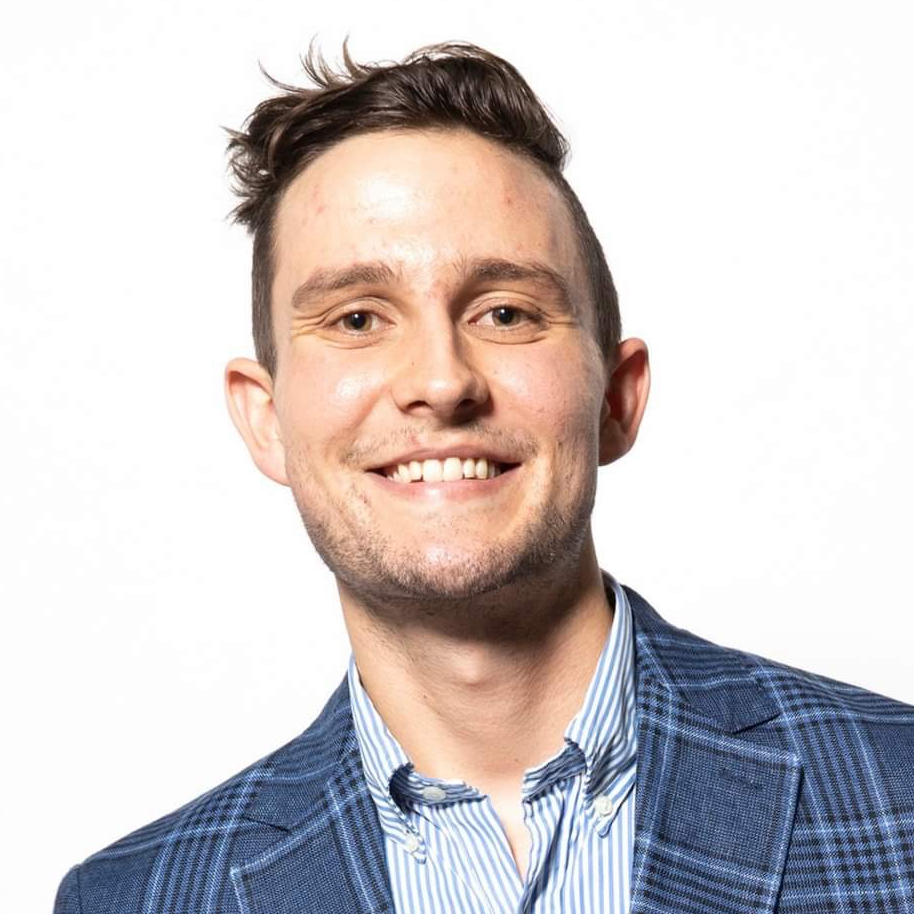
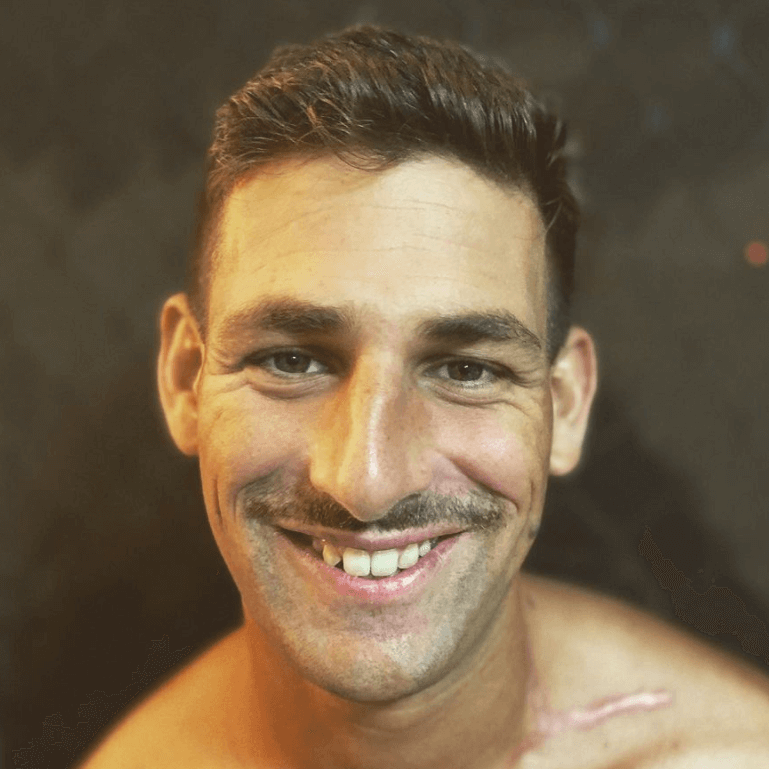
One reply on “Steven’s Stage 2B Non-Seminoma Testicular Cancer Story”
Wonderful story. I am so proud of you in so many ways!❤️